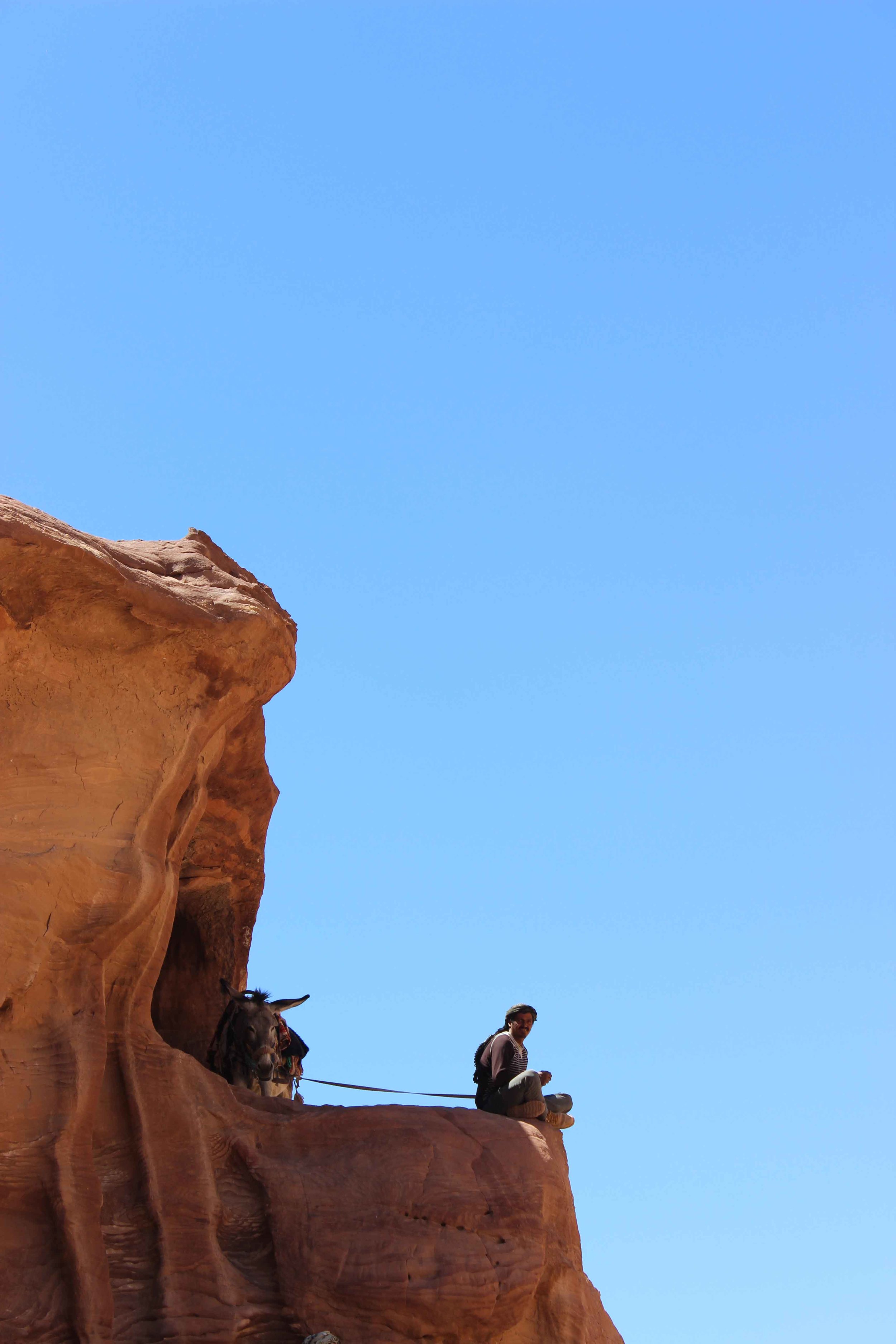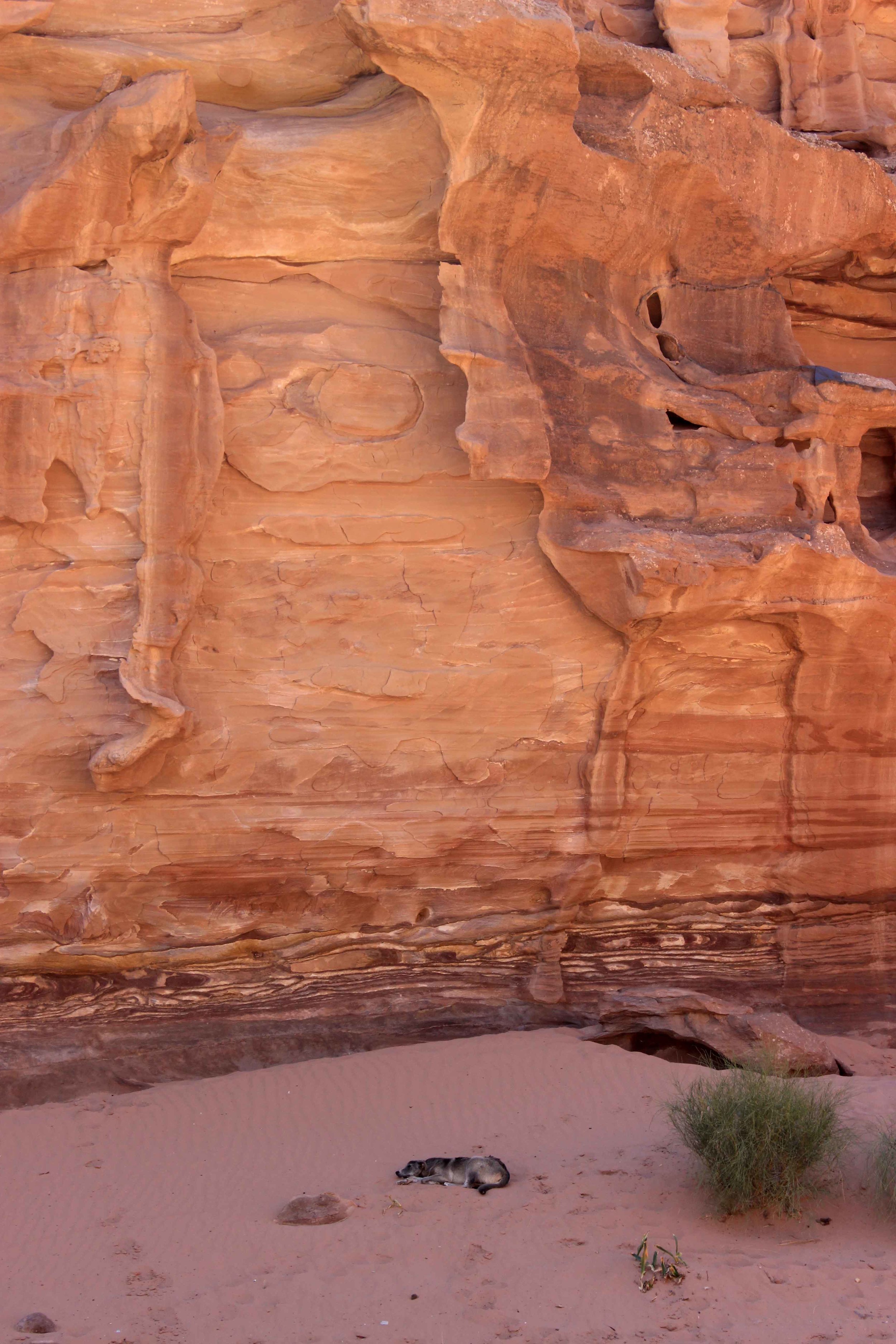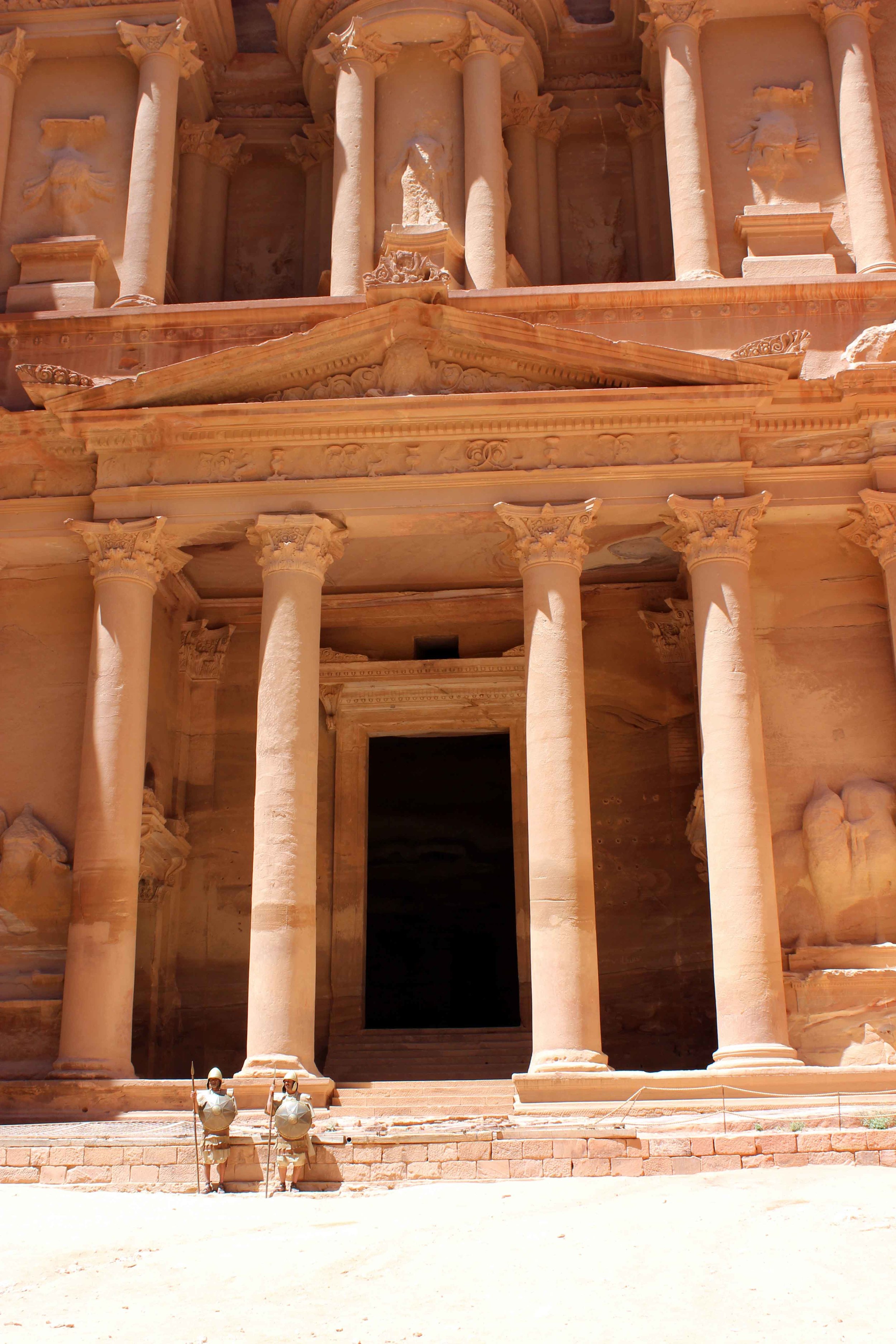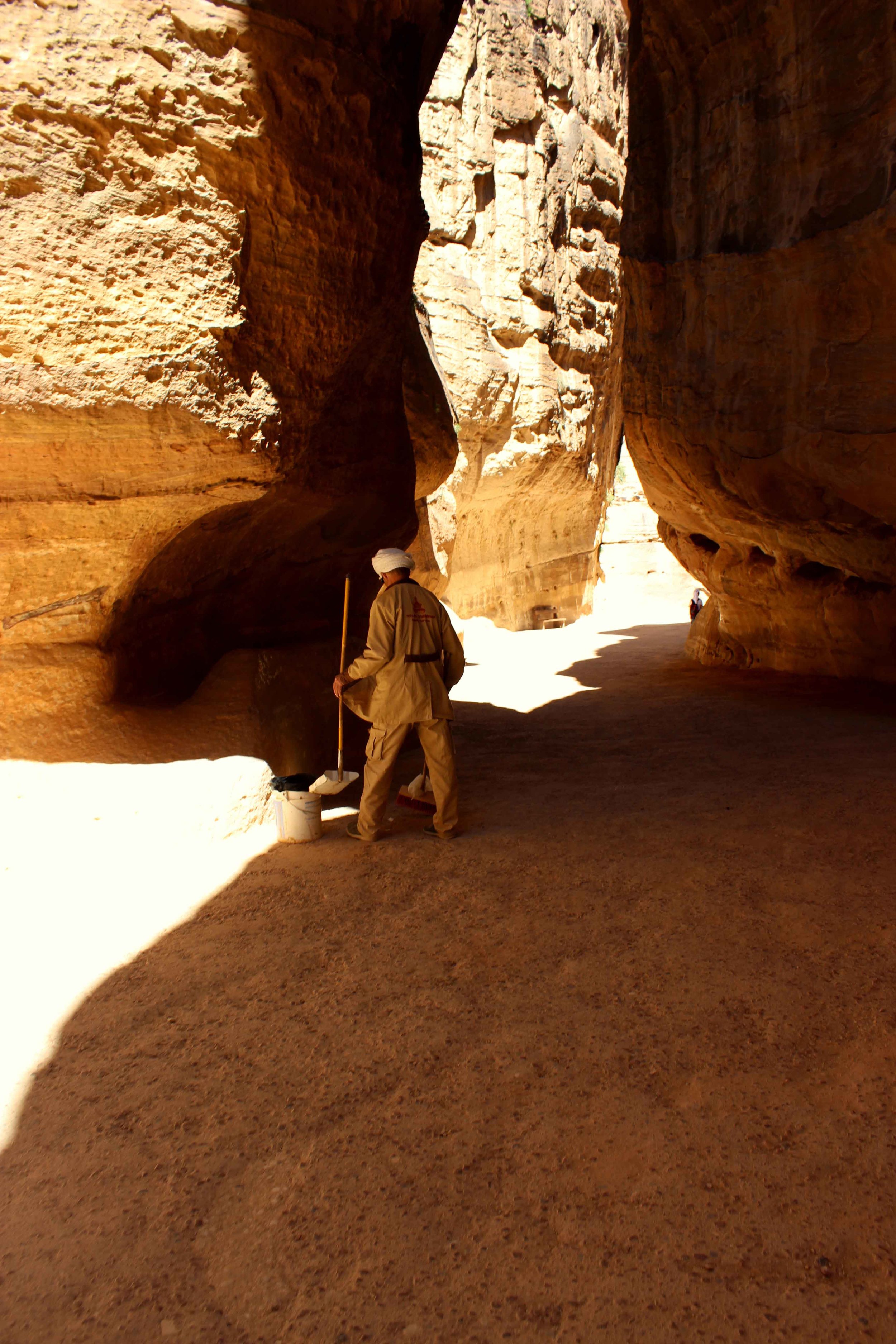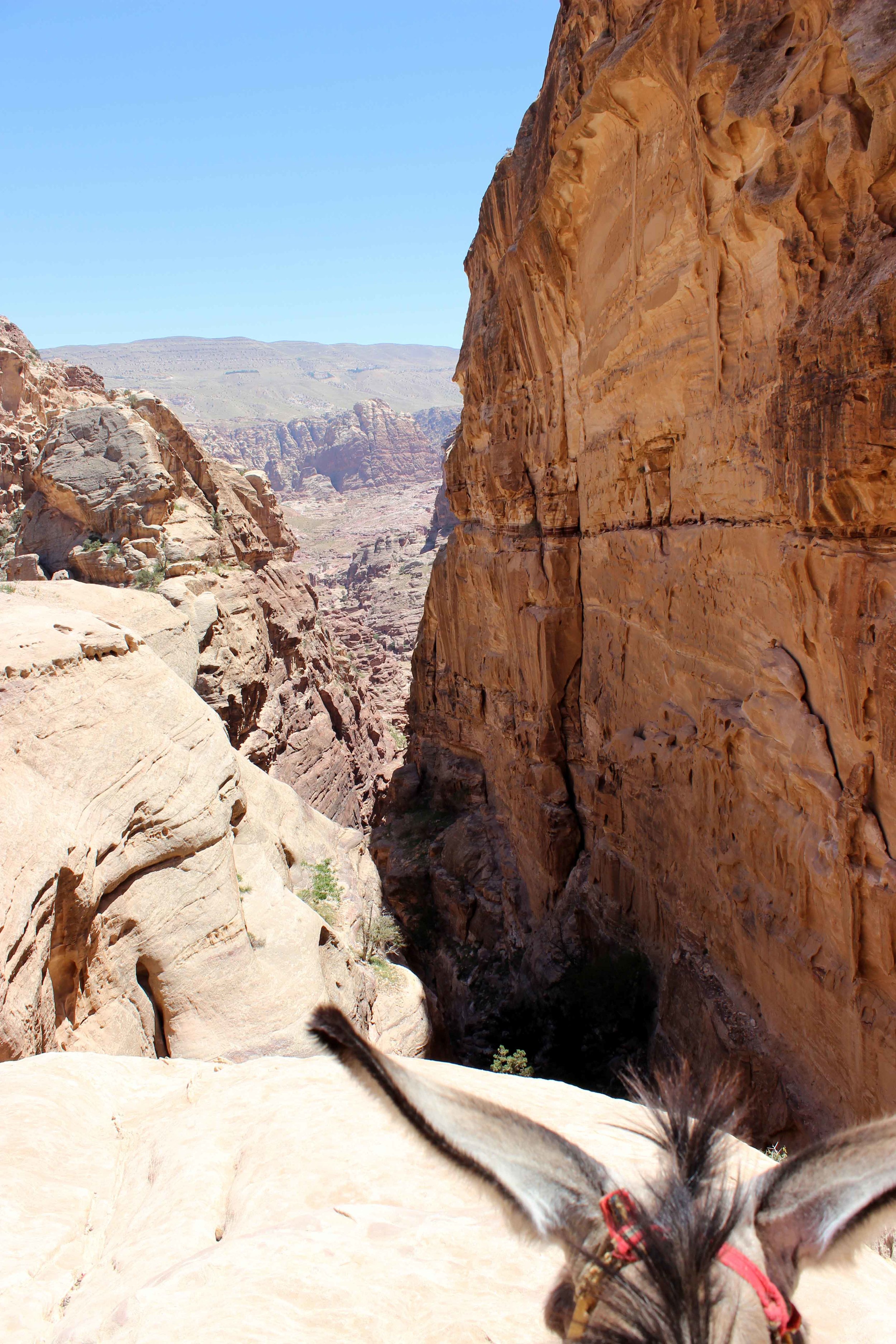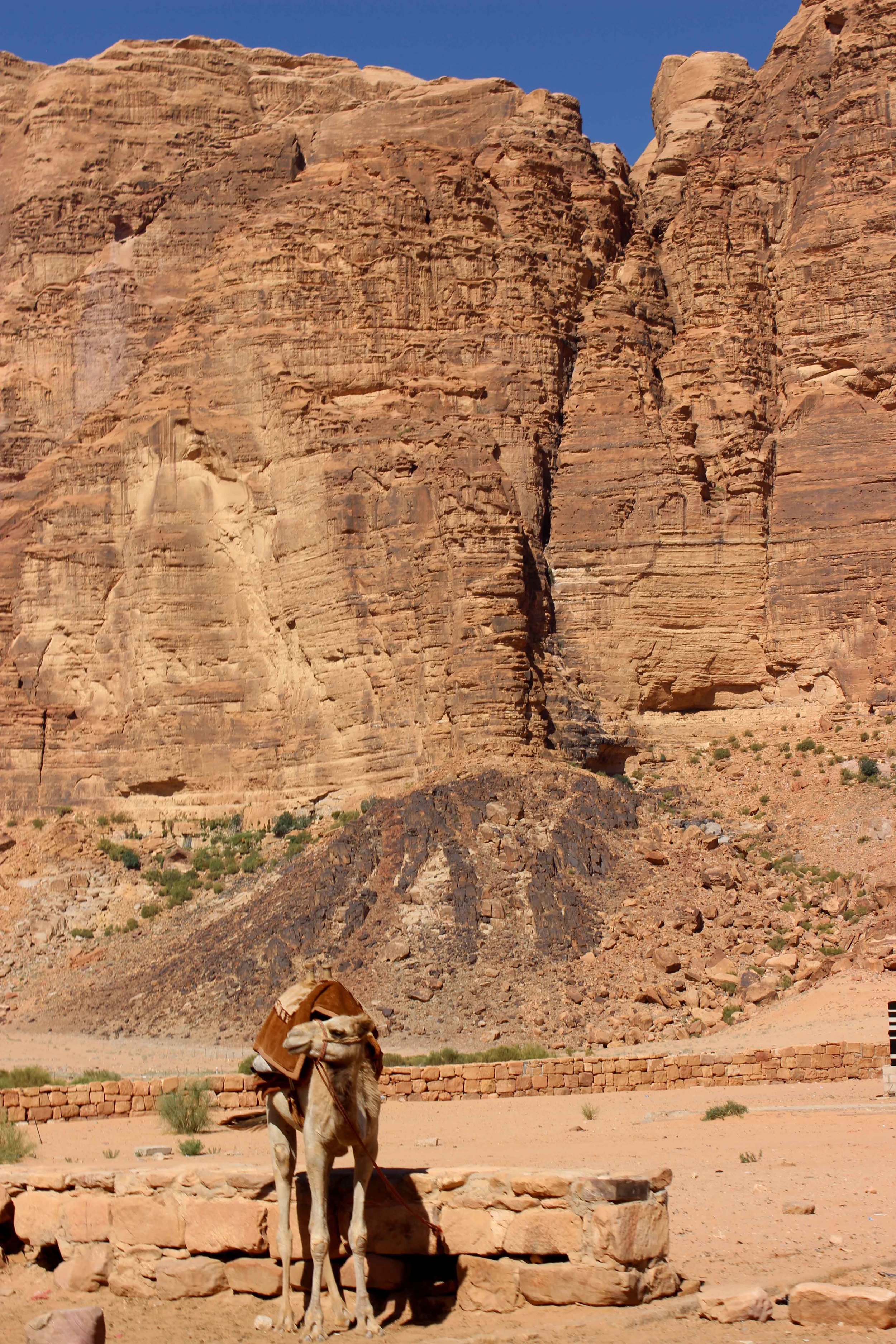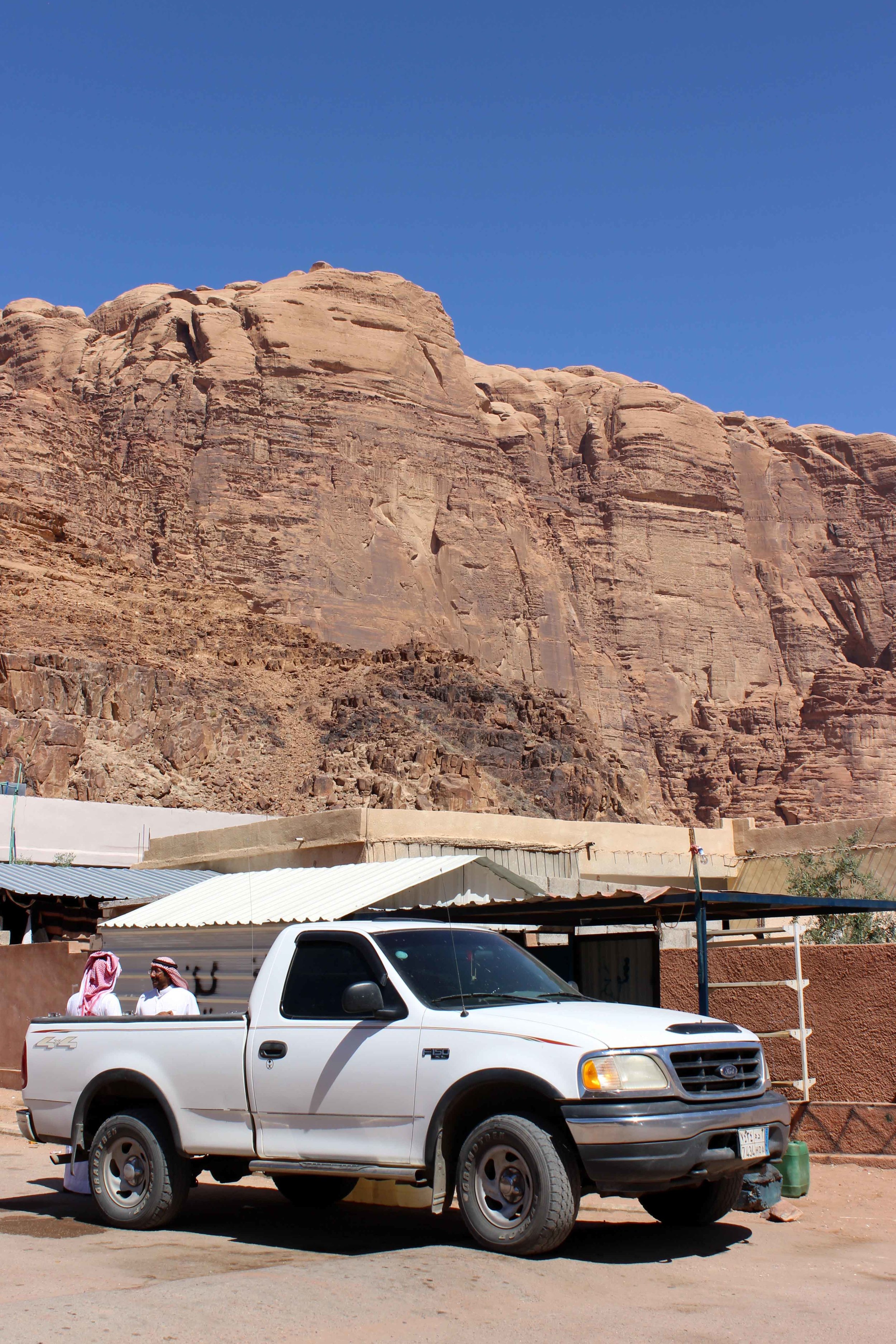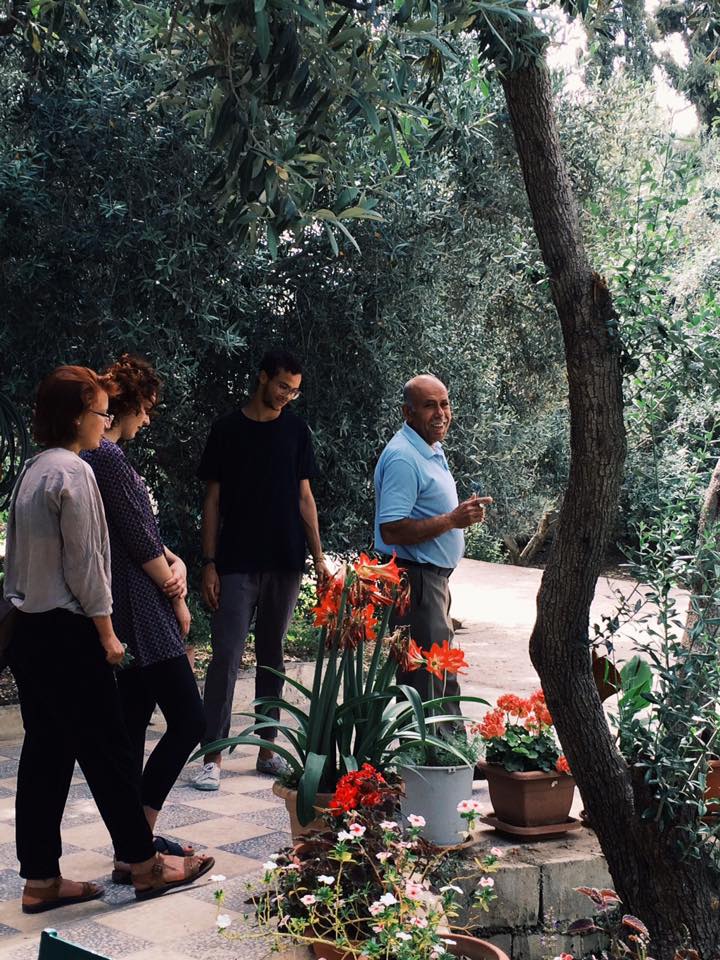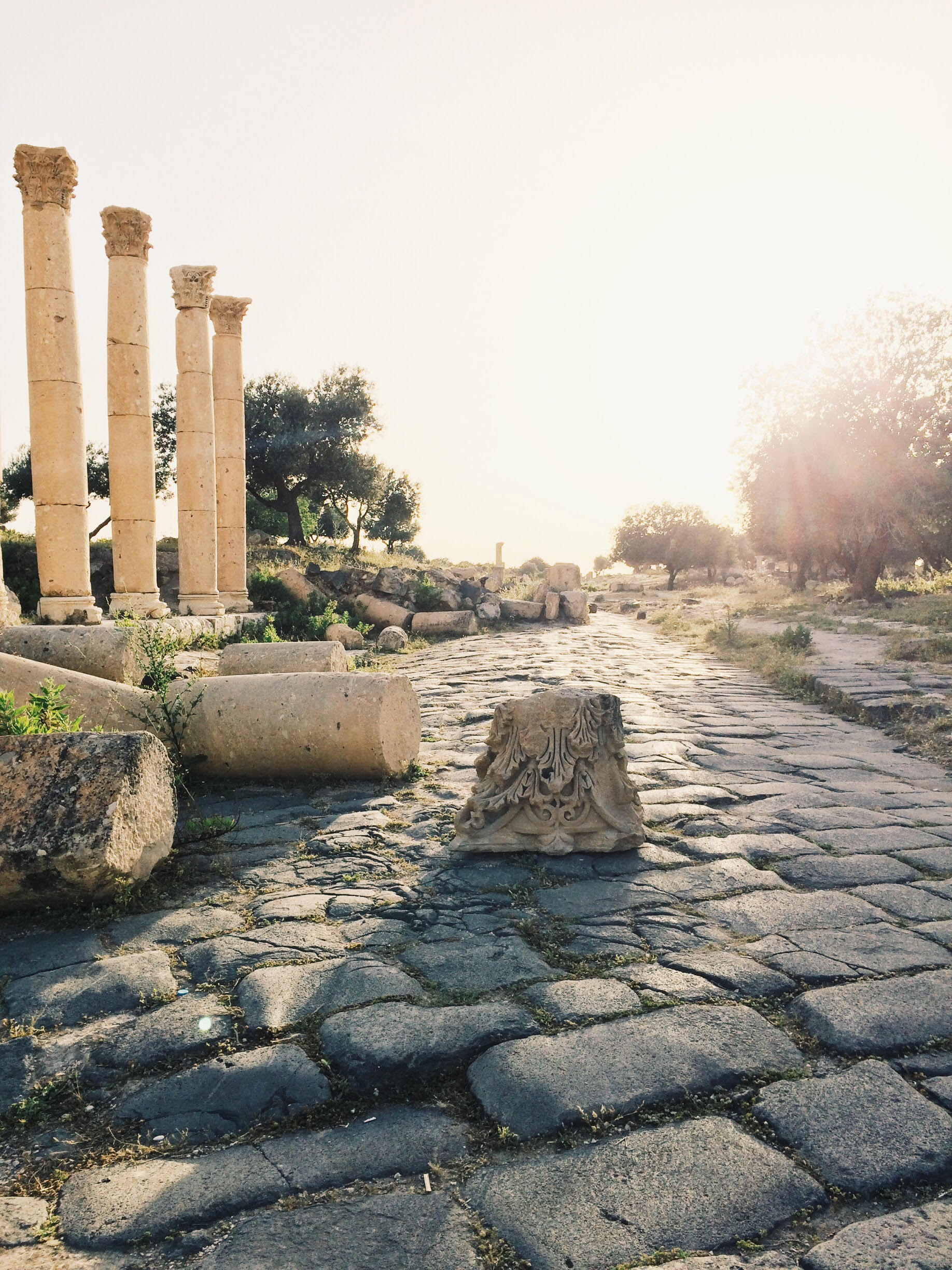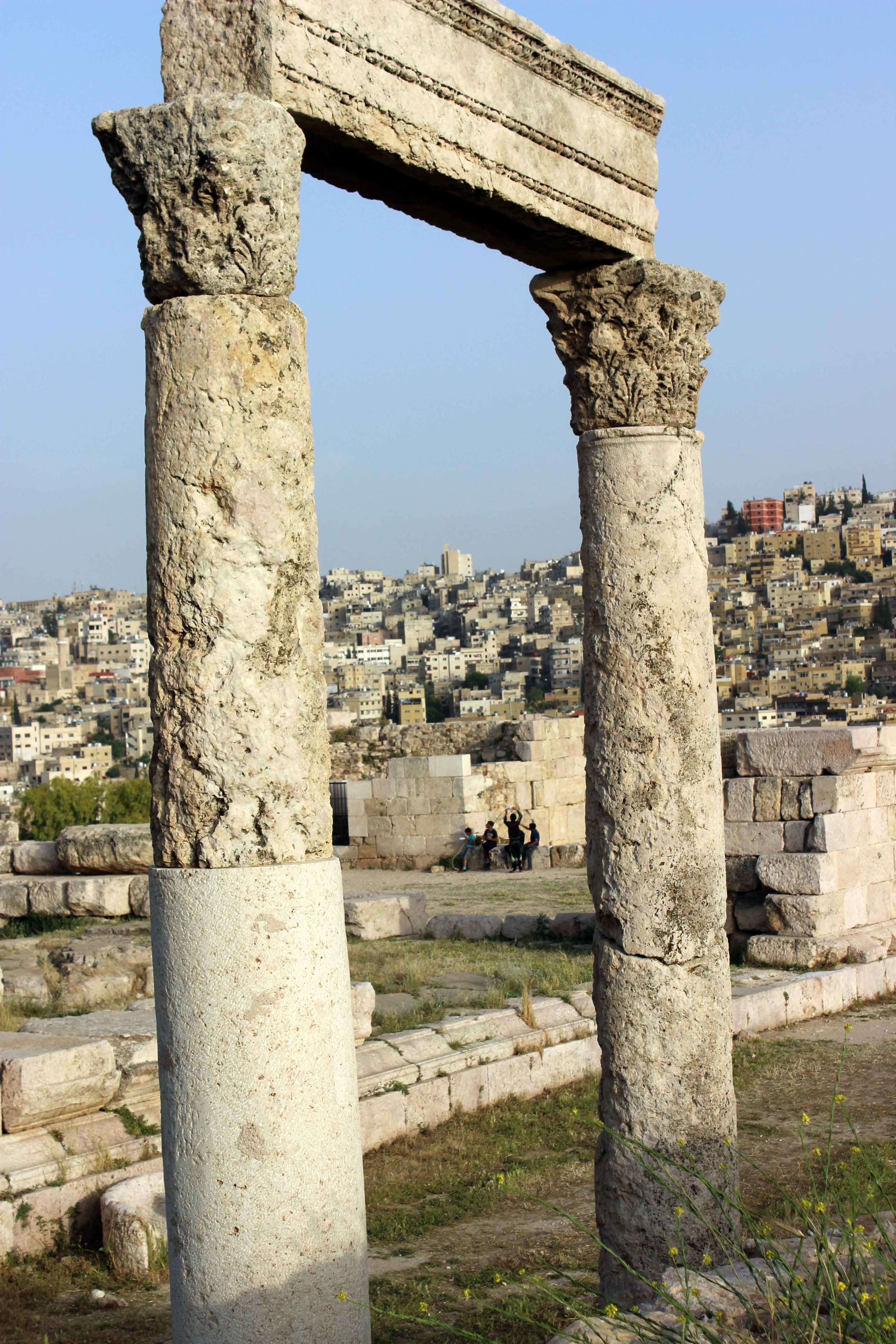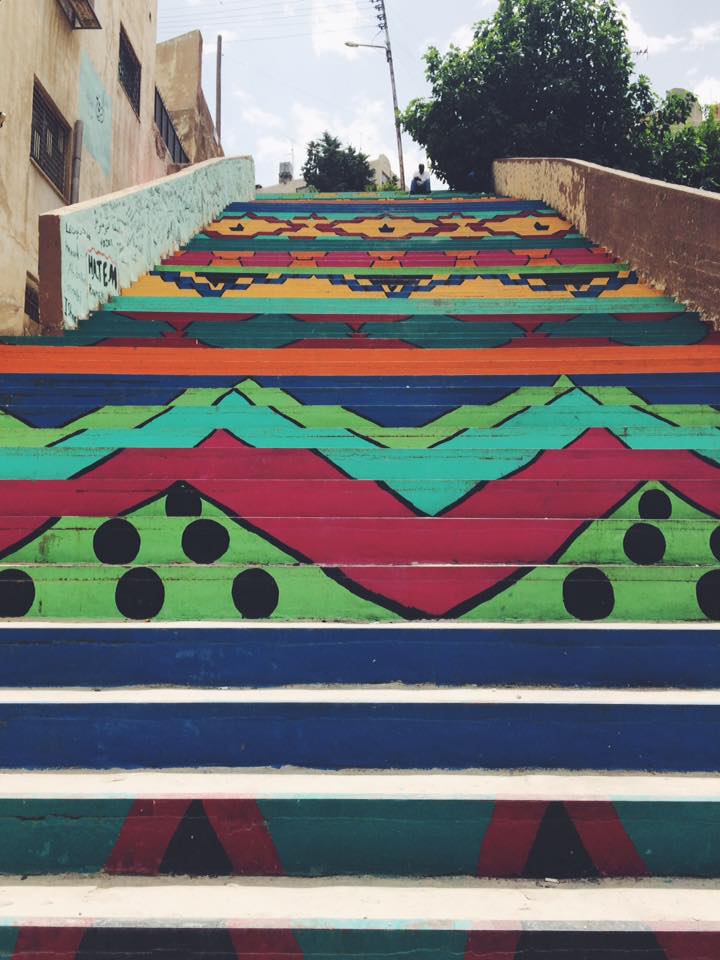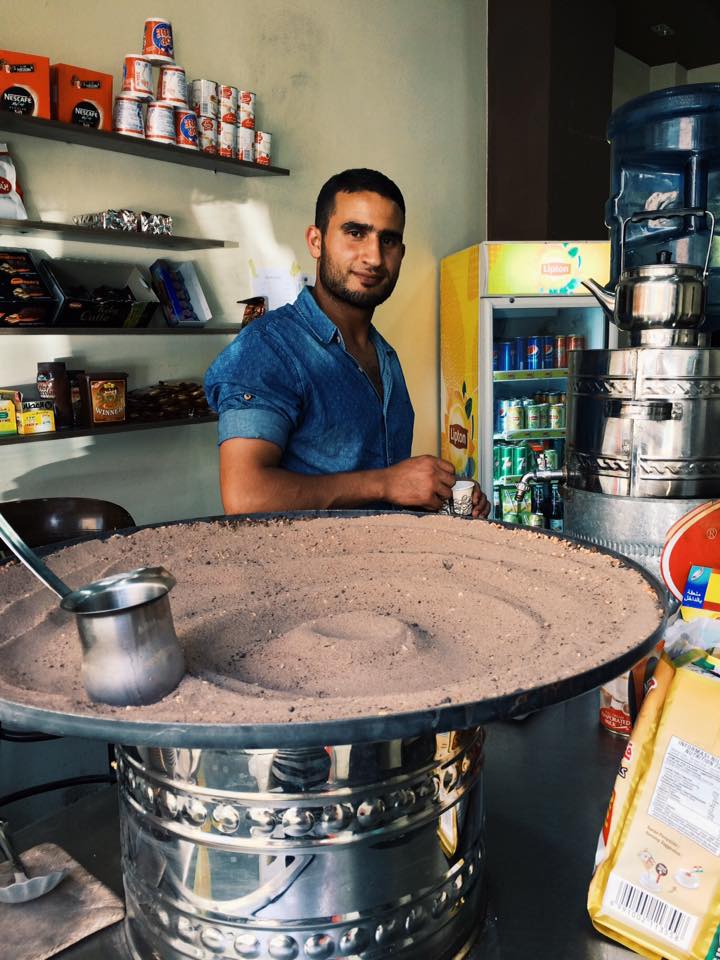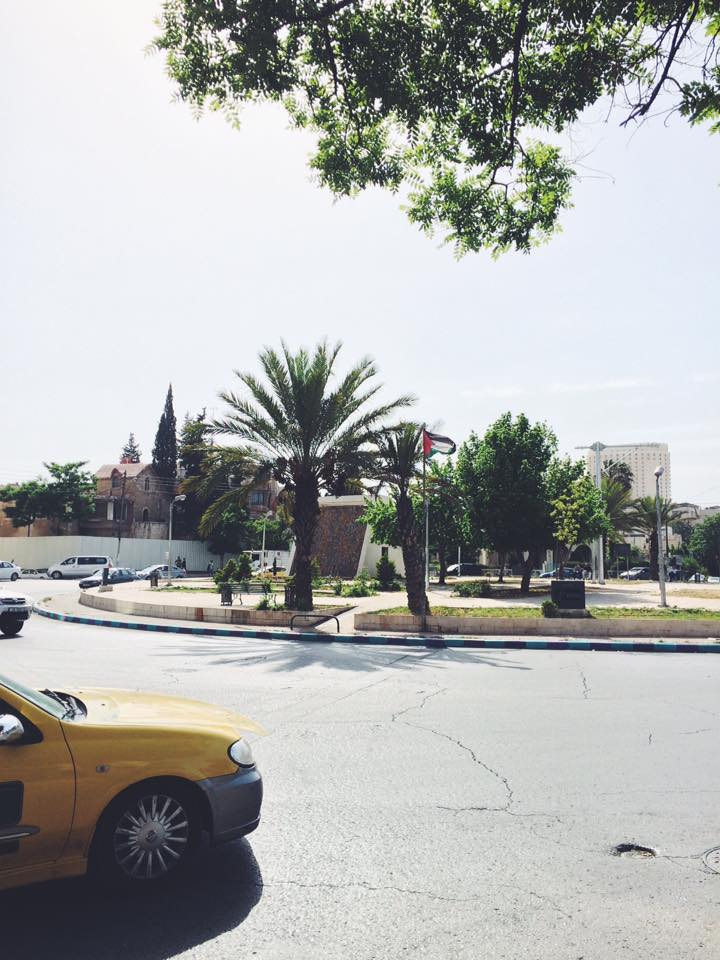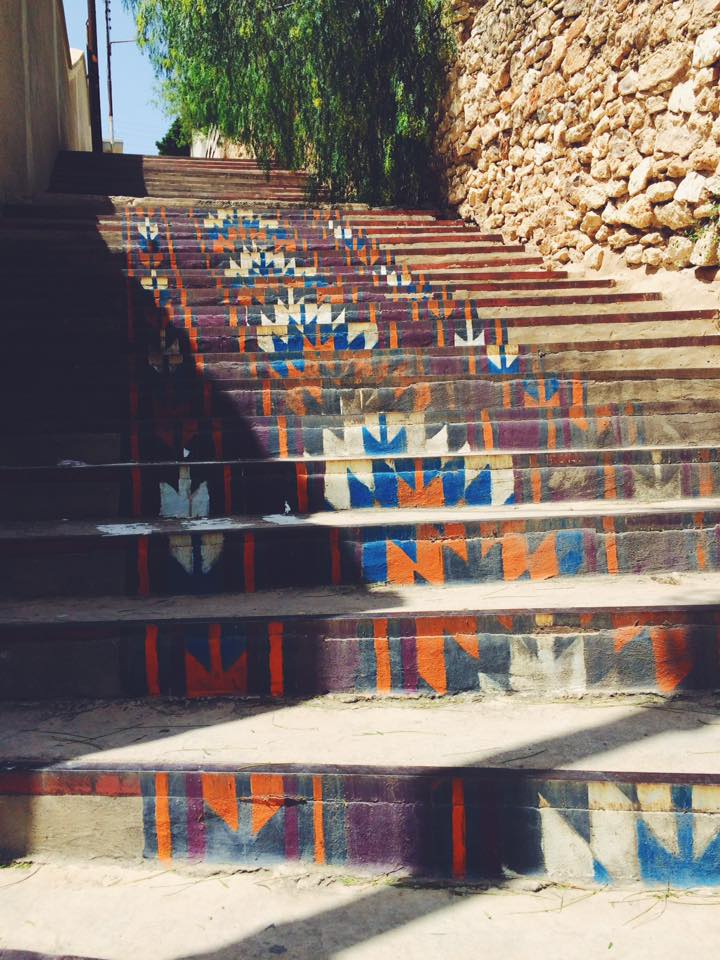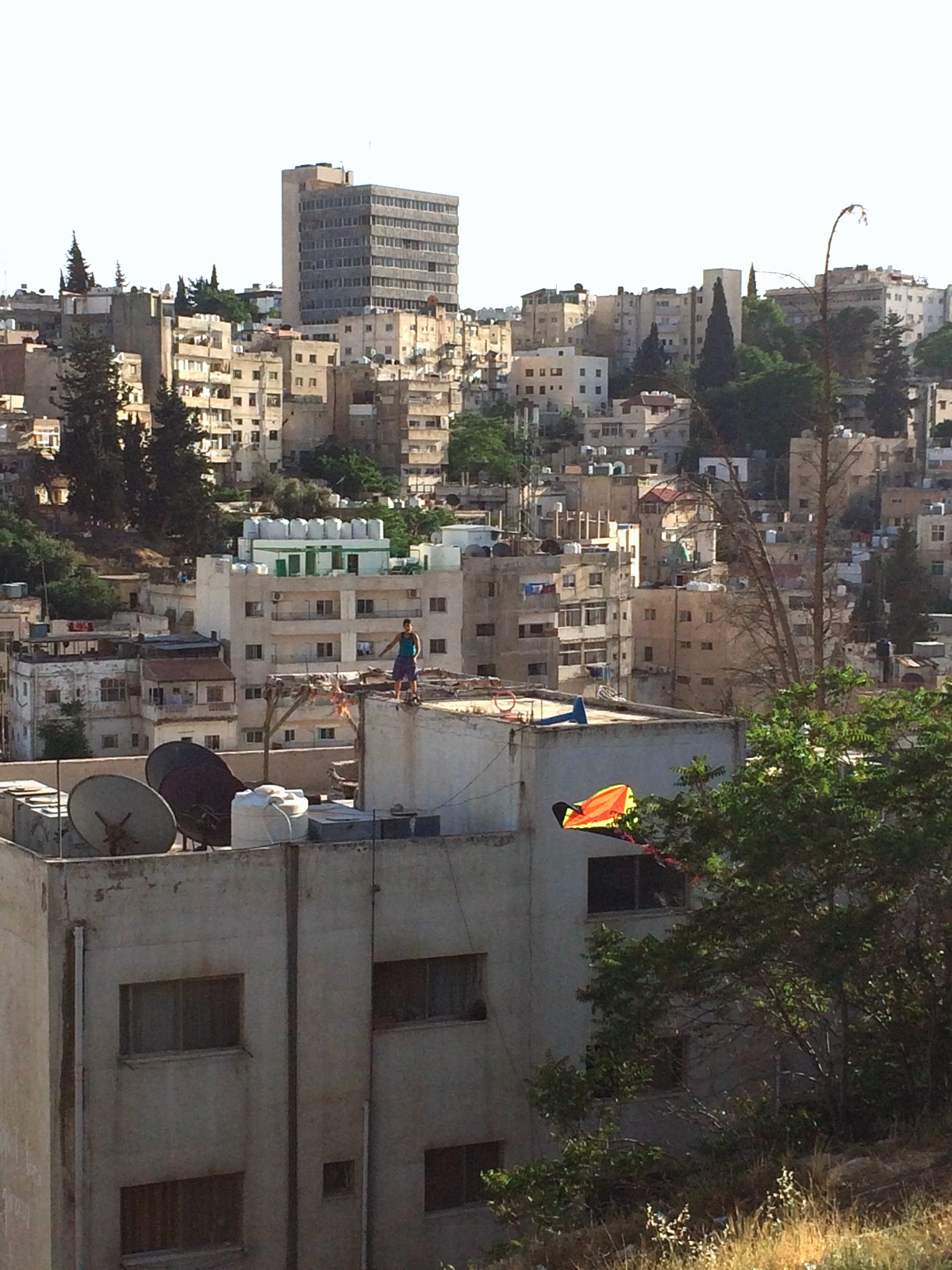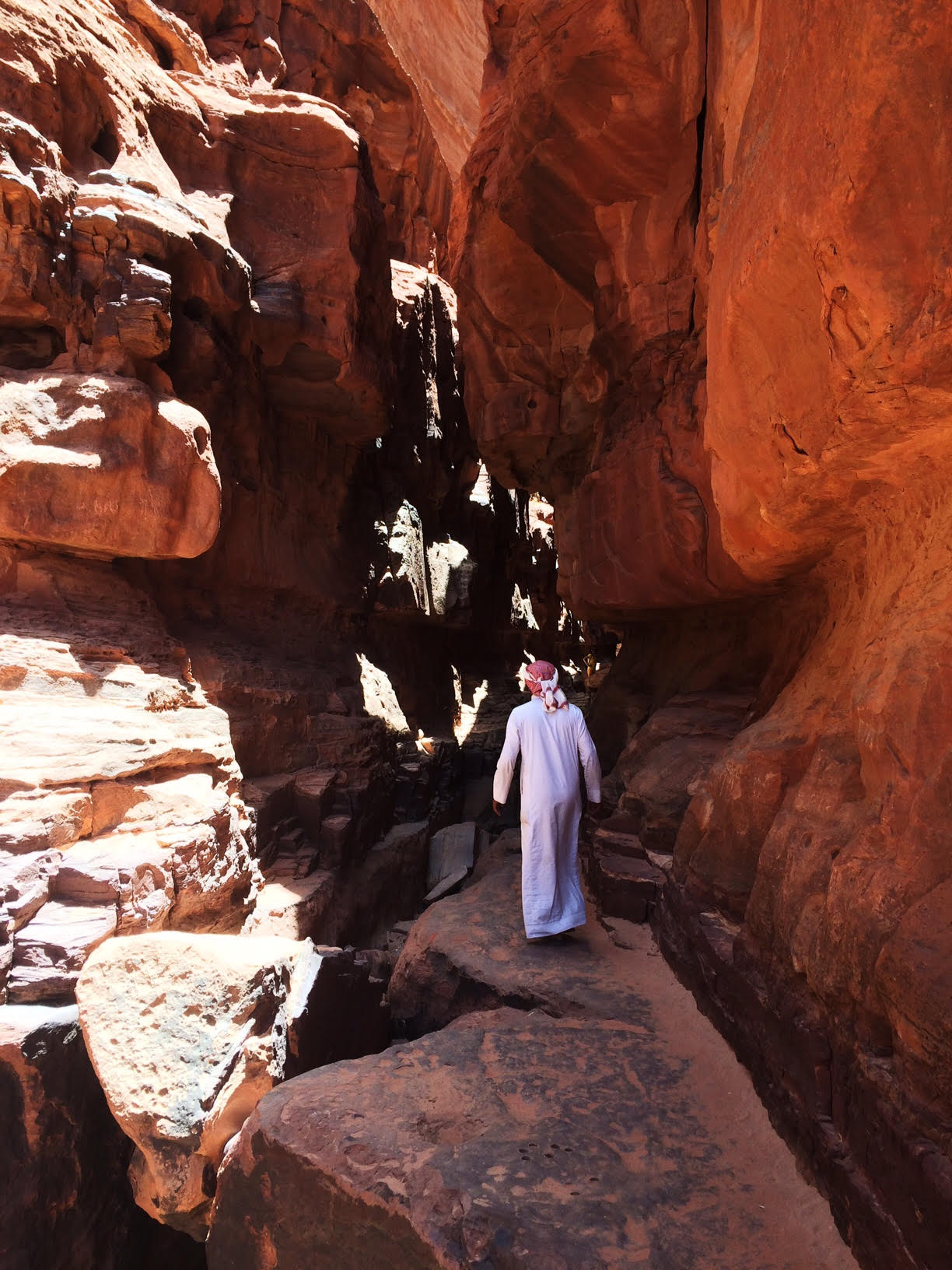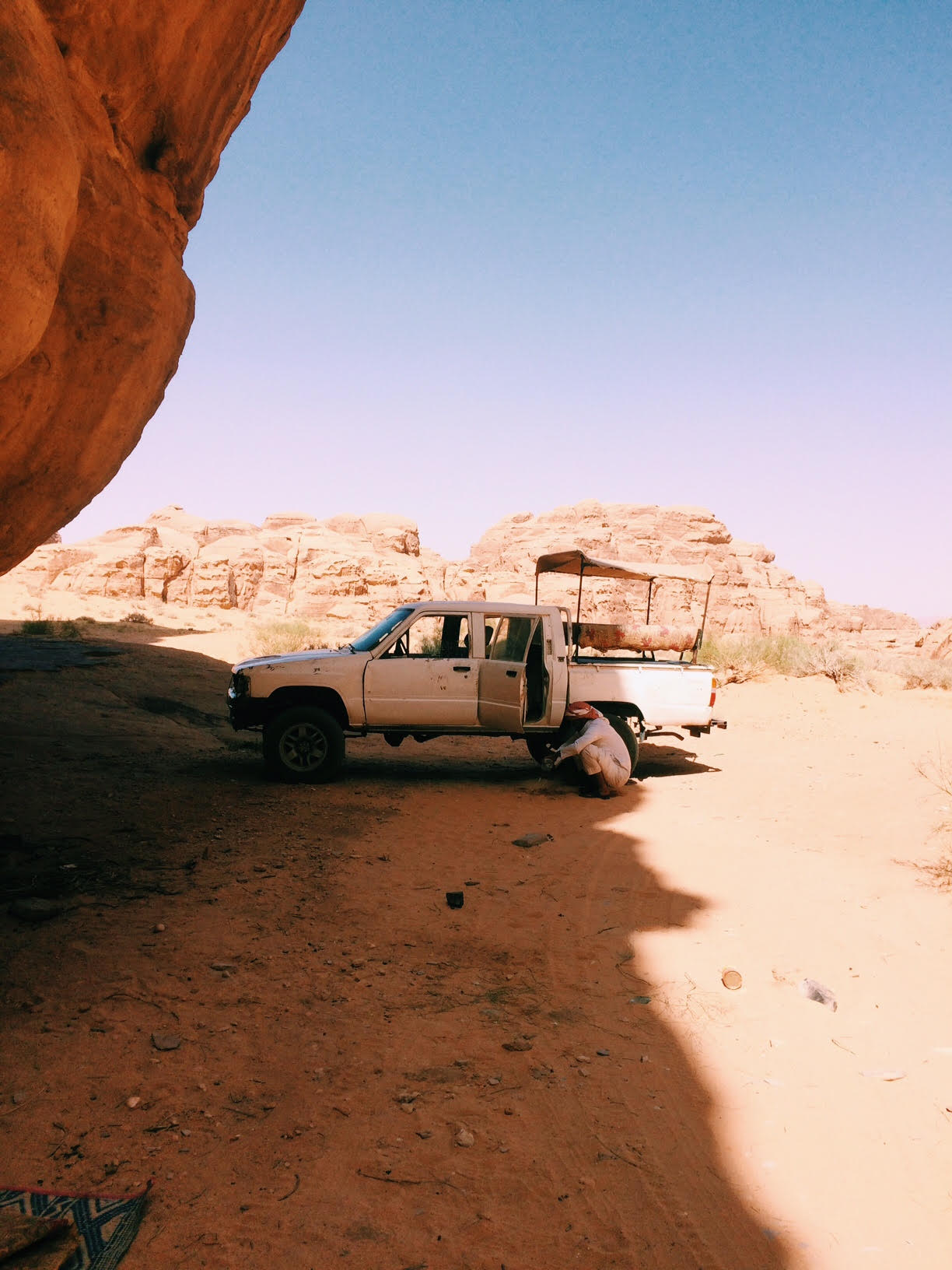Last week during the Pesah holiday in Israel, I travelled to Jordan: from Bayt Shean and Irbid in the North to Aqaba and Eilat in the South. I saw the Sea of Galilee and the Golan from the other side. I dipped my toes into the Red Sea and waved to Saudi Arabia. My days were punctuated by the call to prayer (from its excellent reverberations in the hills of Amman to the transitory notes of someone’s cell-phone ringing an alarm while on a bus heading South). The experience is already slipping away into a mirage tinted in tendrils of Orientalist sentences that romanticize an exotic and foreign life of deserts and tea and hospitality and tribal connection.
There has been a long-standing joke between my parents, Tina, my best friend from high school and myself. One summer, I was 19 and studying Hebrew in Jerusalem, a friend of a friend was living in Amman and I suggested that I might travel to Jordan to meet him. The idea was met by outcries from my parents, “No way. You barely know the guy. You can’t go to Jordan.” They then turned to my friend Tina, tall, blonde, of Norwegian descent, looking like a Viking, “Tina, can go to Jordan. Sophie should not go to Jordan”
Over the years this joke has reared its head again and again, “Sophie can’t go to Jordan.” My friend has even had dreams where she came to visit me in Jerusalem, and then went to Jordan, but I wasn’t allowed to cross the border with her.
As a student of Middle Eastern Studies, I have to confess that this was my first time in a fully Arab and Muslim country. My degrees focus on Israel and Palestine, my languages relate to Israel and Palestine, my experiences are mainly rooted in Jerusalem. My relation to the places outside of this bubble has always been shaped by the Jewish and Israeli identity that held me back. You—with your Jewish curls, your Israeli passport, and your feminine naïveté—you are not allowed to travel alone in “those” places.
This sentiment was echoed again this year as I told people about my plans for the Passover holidays.
“Jordan? Why?”
“Jordan? Alone? Are you sure?”
“Jordan? It’s not safe.”
Surprisingly enough, this time around my parents were not against me going, or at least they knew better than to tell me. At the moment, Jordan is the most stable and safe country in the region. It has turned into the hub of internationally based students of Middle Eastern Studies, NGO workers, volunteers, UN interns, and more. Since the rest of the region is off limits, those who used to go to Cairo, Damascus or Beirut to study Arabic are now all go to Amman. I have 3 friends there currently, including one of my close friends from my undergrad and another from my Masters program.
So with that in mind, I packed my bag, and headed up to the Northern border. There are three land-border crossings between Israel and Jordan. One is up North, the Sheikh Hussayn Crossing, about 2 hours from both Jerusalem and Amman. The main border crossing, Allenby Bridge, is located about 40 minutes from Jerusalem and Amman. This crossing is the only place where Palestinians without passports (i.e. those from the West Bank with laissez-passé documents) can cross in order to use the Amman International Airport. Israelis are forbidden from using this crossing. The third crossing is down South, the Yitzhak Rabin Crossing, where Aqaba, Eilat, and Taba hug the coast of the Red Sea and compete for scuba divers and tourists.
Getting to the border was a journey of its own. After five hours in transit (and three separate bus changes), I found myself in (what felt like) the middle of nowhere in Bayt Shean. I flagged down a cab and asked to be taken to the border. No other options in sight (with a bus that goes from Bayt Shean near the border only a few times during the day), cabbies charge you for your desperation. 5 minutes later, he had dropped me off at this strange strip where I followed mazes of signs indicating where pedestrian travelers are supposed to walk. As I entered the air-conditioned doors of the building, I looked lost and was quickly guided by a man in Hebrew to the proper windows.
"Traveling to the East?" he asked me in Hebrew, scanning over my backpack and assuming that I was making the pilgrimage to India that most Israelis my age make after completing their army service.
"No, to Amman."
"To Amman?" he repeated as if to make sure he heard me correctly. "Amman?" he repeated a second time.
I smiled and walked on to the next window to get a stamp in my passport and move on.
I got on yet another bus that drives across 200 meters and an imaginary line that has been drawn in the sand between the two countries. Jordanian border police greeted us and the regulars (young Palestinians with Israeli passports) walked in a quick diagonal towards the doors of the customs office, familiar with the shortcuts. I exchanged shekels for dinars and paid the entrance fee. Once you emerge, you find yet another cab to take you to the edge of the border. I was squeezed into a cab with 4 young Palestinians in the backseat, a trunk that wouldn't close properly, and a cabbie who looked at me and said "American? America is good." And with that, I walked through the looking glass and into another identity.
The whole week in Jordan, I felt comfortable in my own skin. As an American, as an Israeli, as a Leftist who says the words occupation and Palestine louder than a whisper, even as a woman. The stereotypes and fear mongering that had prevented me from making this journey sooner were quickly dispelled by smiles, rooms filled with cigarette smoke, and cups of black tea with I-don't-want-to-know-how-much sugar.
The little spoken Arabic I have learned (and the old-fashioned literary Arabic I learned at school) made a huge impact in interactions and I was surprised again and again by just how much I understood. At one point a friend explained their language level perfectly. "I speak dictionary," he responded to a conversation about whether you speak spoken-Arabic or literary-Arabic. Dictionary-Arabic is what they taught us in Jerusalem too: how to break down sentences, how to analyze grammar, how to open a dictionary and translate. But during this week, the words of the dictionary pages came to life. Idioms such as Inshallah, Wallah, Ma-shallah, El-hamdulillah and more entered the gaps in my sentences. Encouraging grunts of "uh" filled the pauses between my breaths. Sighs of contentment and tasty meals soon had new adjectives to describe them.
The adventure truly got underway during my first night. After being scooped up at the border by my friend and his rental car, we braved the lawless traffic and roads of the North. We headed to Um Qays, a hilltop covered in Hellenistic ruins and a Roman amphitheater carved out of the black basalt stone. We ate lunch overlooking the Galilee and the Golan. After a good meander through the fallen columns, we went back to the car to scan through the guidebook and pick a place to stay that night. My eyes landed on a place called Pella, a small town about an hour away that was supposedly surrounded by ruins from every time period extending from Neolithic to Umayyad, Abbasid, Hellenistic, and Byzantine; plenty to explore tomorrow. So we called up the Pella Countryside Guest House and asked for a room for 2.
Along the way, we passed near the border and standing in the dark at the side of the road were three figures with big backpacks: tourists. Before I knew it, my friend had pulled to the side and offered them a ride. Three sweet-faced Germans, volunteering in Israel and on vacation in Jordan, climbed into the backseat.
They smiled warmly as they announced that they were looking for somewhere to camp. We mentioned where we were headed and offered that maybe they could camp in the land near the guesthouse.
Upon arriving to Pella (also known in Arabic as Tabaqat Fahl), after many detours and young children running up to the car and pointing us in the right direction, we turned onto a small road following signs for the guesthouse. A man was standing in the middle of the road, waiting for us it seemed. Turns out it was the owner of the Guesthouse. Hellos were exchanged, we confirmed that we were the ones who called for the room earlier, and we had some more people now, could they camp?
It was quickly and clearly seen not to be an available option.
“My brother. My sisters. You should not camp here. Not with everything going on in these parts.”
One of the Germans timidly looked over at my friend and me, “Does he mean that there has been a murder here recently?”
We laughed and shook our heads. “He’s talking more generally about the Middle East as a whole.” What we didn’t say was that it also was directed at the prospect of having another 3 people take a room at the guesthouse during these times of low tourism—because you know, everything that’s going on around here lately.
The evening was punctuated by intense political, religious, and theoretical conversations with our host. The place was less hotel-like and more personal: “What you eat, I eat. What I eat, you eat. When do you want dinner?” asked our host.
We gleaned a lot of information from him, not only about the current status of political affairs, but also of what life for a Jordanian is like. He had been in the air force, he had seen some horrible things during Black September, he was an ardent supporter of His Majesty King Hussein. He was eager to share universal quips about how all people, be they Muslim, Christian or Jewish, should be treated with equal dignity. He bragged about how Pella was a favorite place of Jesus Christ (who by our host’s version of history had visited four times). He went on about the beauty and the importance of all human life.
“Except for the Saudis. And the Kuwaitis. And the Shi’as. They are not Muslims” he confided.
By the end of the stay we were pretty convinced that he has serious government connections. Our suspicions were confirmed the next day. Over dinner he had spoken of how there was a hidden cave, where Jesus is said to have stayed, and an old Byzantine church that no one ever visited. He took us there the next morning, pointing the route, waving at every person whom we drove by in recognition.
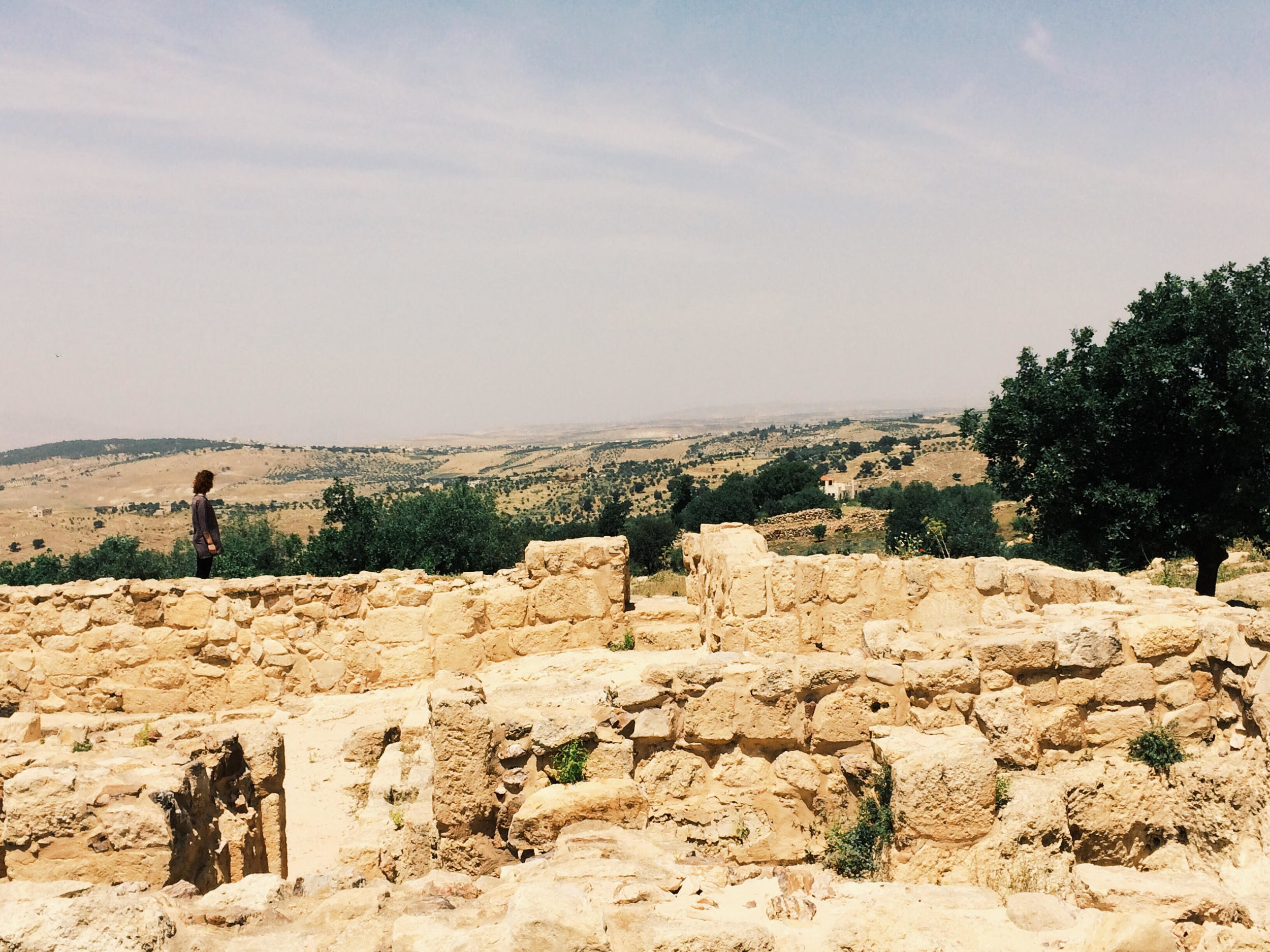
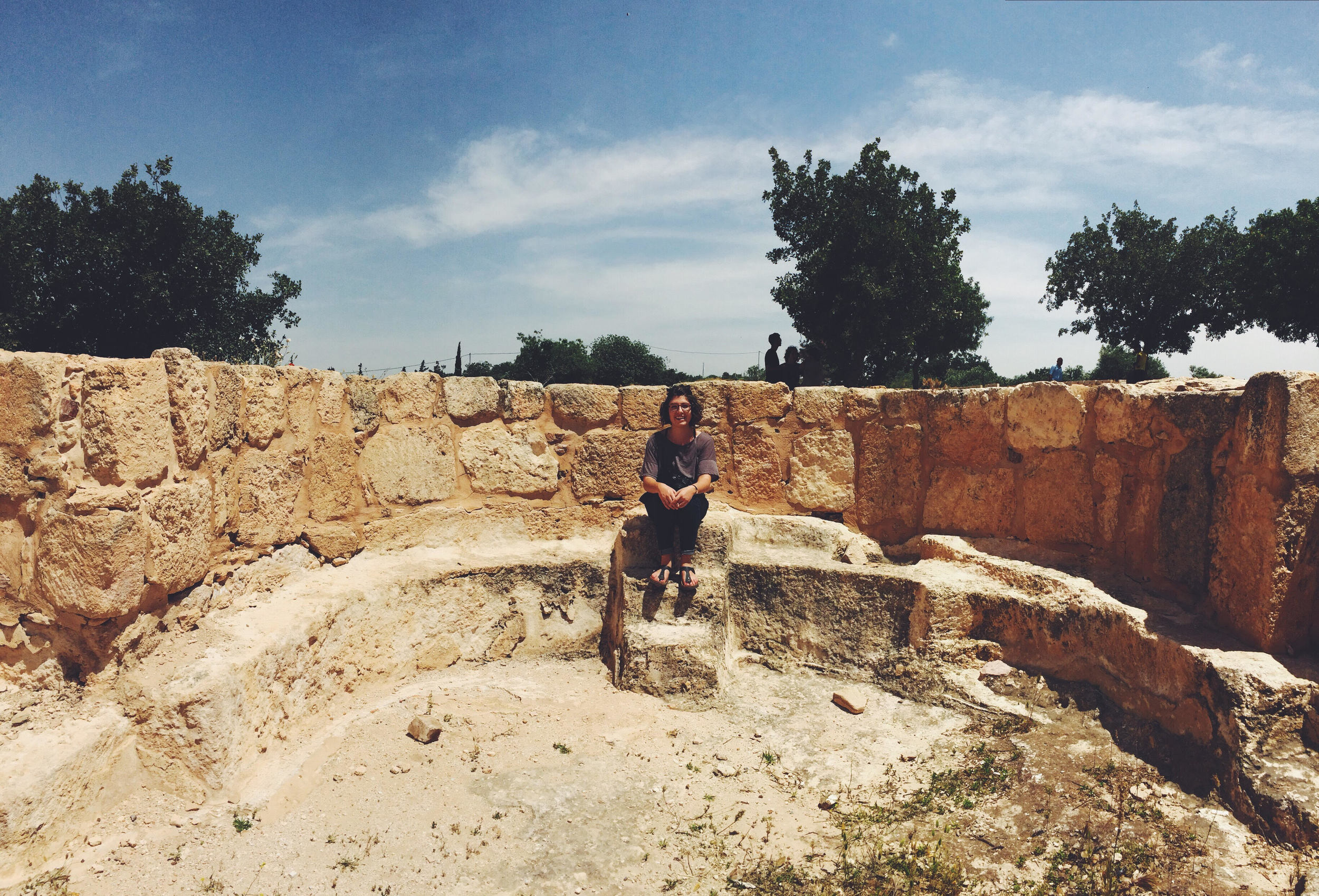
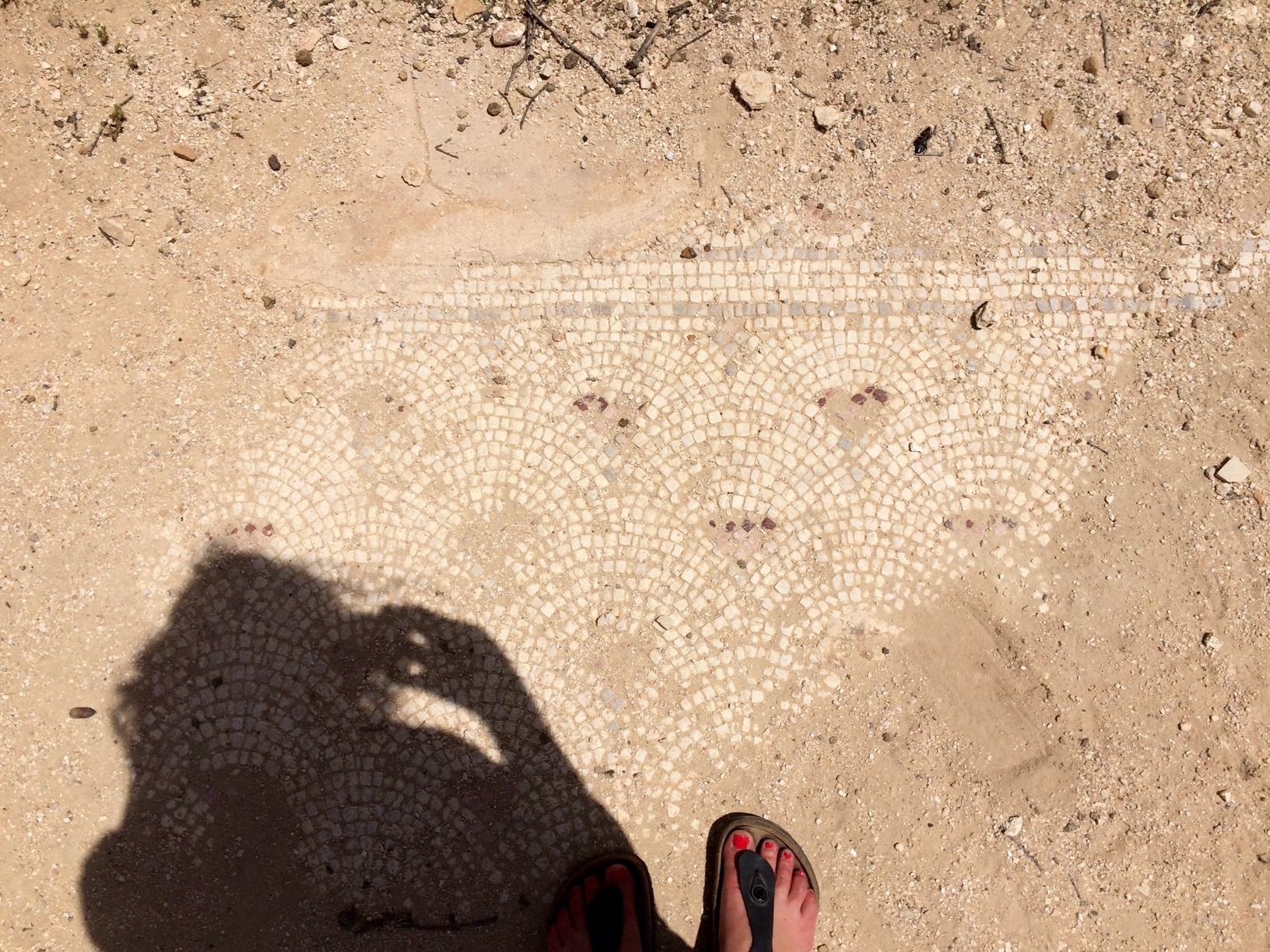
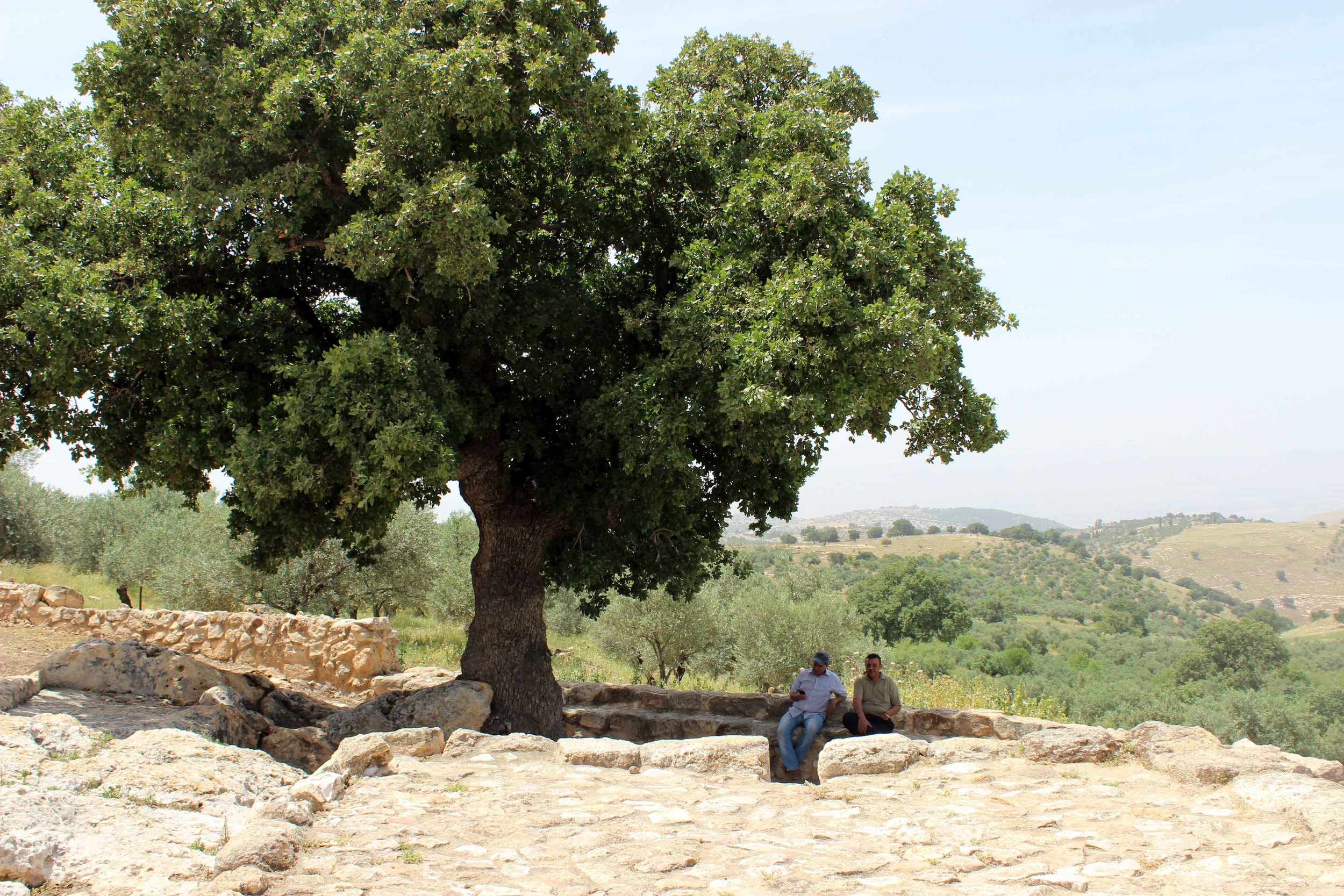
After letting us roam freely among mosaics and Byzantine sarcophagi, he directed the car into town to buy cabbage for his wife. We pulled over and let him into the store. He returned to the car and then said, quite casually, “We’re right across the street from the head of the Municipality’s house. Why don’t we pay him a visit?”
My friend and I exchanged worried glances, but how could we say no to our host who had been so gracious?
So we followed him like sheep into this government building, first my Arabic speaking friend, then me, then the three Germans. We were ushered into a room and as the cigarette smoke cleared, I saw a man sitting behind an impressive desk, framed by a tapestry on the wall behind him with the bismillah embroidered in gold thread. The walls of the room were lined with brown-leather EZboy recliners. Sitting in those chairs were nine men smoking cigarettes, including one man in full Bedouin garb smoking a giant rolled cigarette. Another man was wearing the clean-khakis of casual army wear. They looked as if they had been waiting for us. Our host glided into the room with ease, sat down and took the cup of coffee proffered to him by a young man. Salaam-alaykums were exchanged, and then our host dived into a speech. The Germans and I smiled to each other nervously.
Translations muttered under my friend’s breath alerted me that our host was asking the government official for a road out to the church that we had visited that day. Tourism. Tourism could be a big boon for the district, if only there was a road and someone taking care of this church. Look! These tourists crossed over from the Northern border and arrived here—he gestured at us sitting there. With a proper road, we could have tourists like this all the time.
The man sitting behind the desk listened. He then returned a speech with many gestures and seemed to take the upper hand quickly.
“Who am I to deal with tourism? There are many different ministries that are responsible for that.”
The conversation continued as two little cups were passed around, refilled with coffee, and passed to the next person.
As abruptly as the whole thing began, it ended. We said goodbye and walked out and down the stairs. We paused at the entrance to the building and our host smiled at us: “You did good for Jordan.” And with that we got back in the car and drove off.
The rest of my visit to Jordan continued in a similar strain: individuals opened their homes to me in an incredibly personal way that offered me glimpses into so many different ways of living.
From Amman and my circle of expat friends who cringe as they realize that they are “gentrifying” a certain neighborhood yet can’t imagine living anywhere else in the city, to the warm welcome from my two Jordanian friends who snuck me in as a local resident to see the view of Amman from the Citadel, to the best scrambled eggs of my life in the cave home of our guides in Petra, the week was full of moments of intense hospitality, authentic conversations, and an intimate feeling of trust between strangers. That combined with the spectacular scenery and the strange feeling of déjà vu as we walked through the ruins of several Empires’ histories, while the region around us is collapsing all over again, made the week an unforgettable trip.
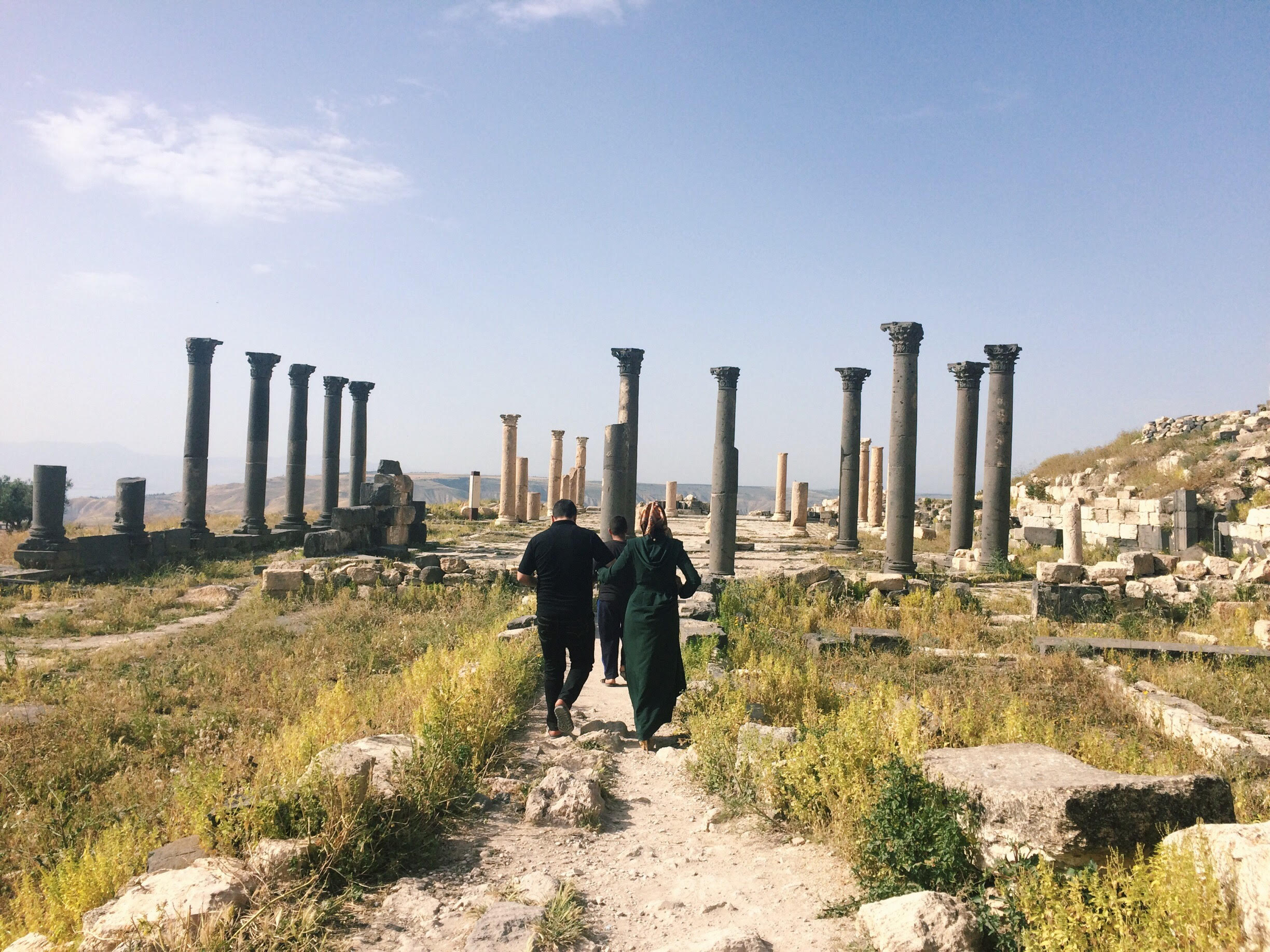
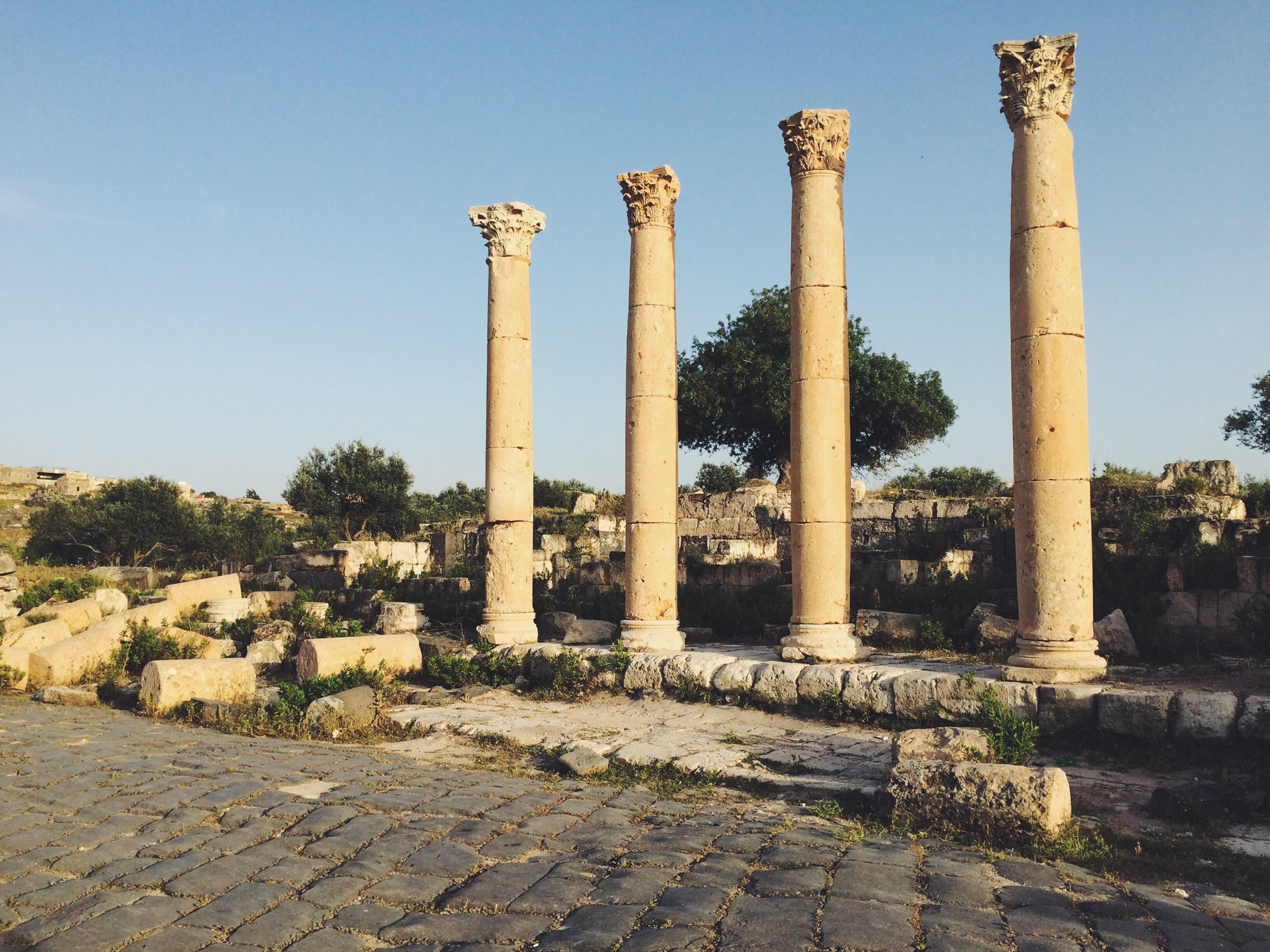
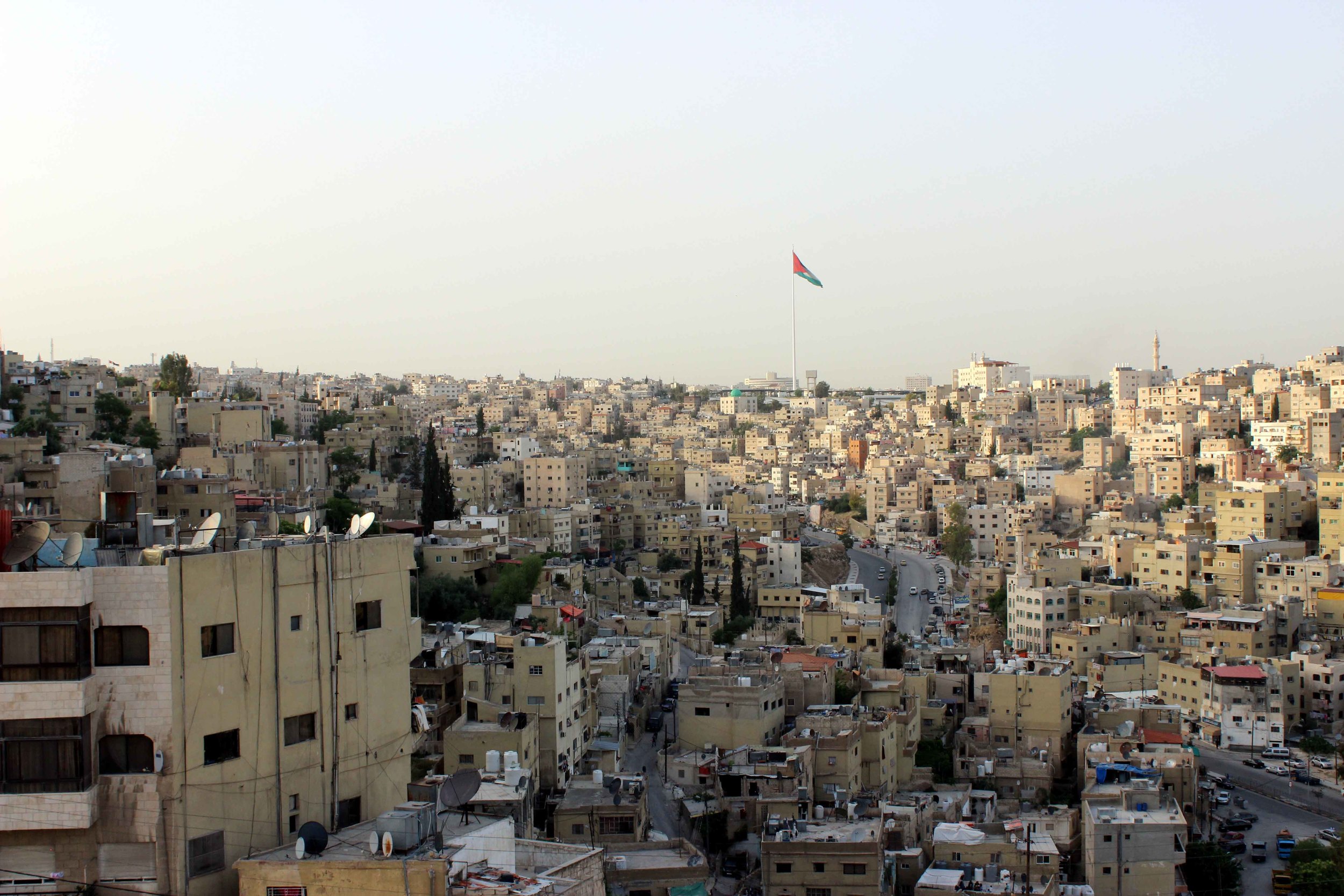
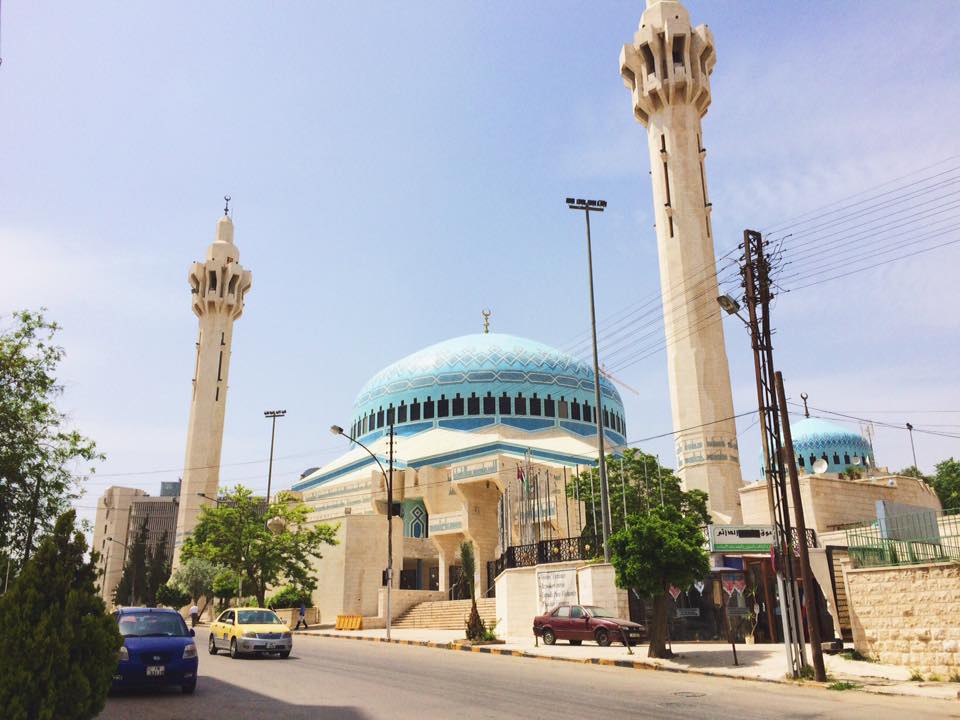
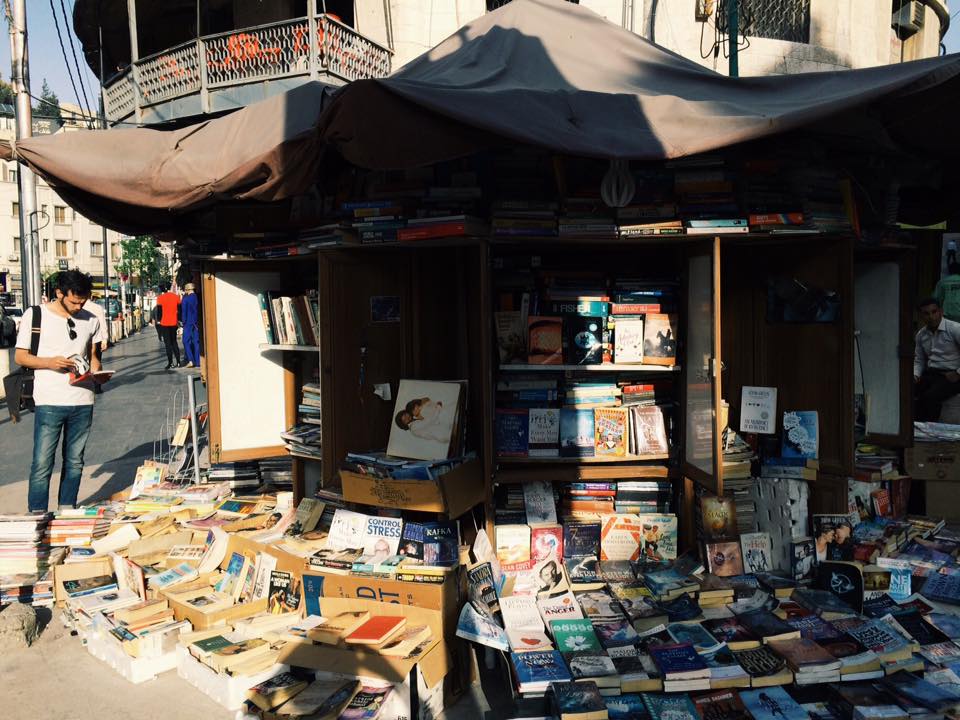
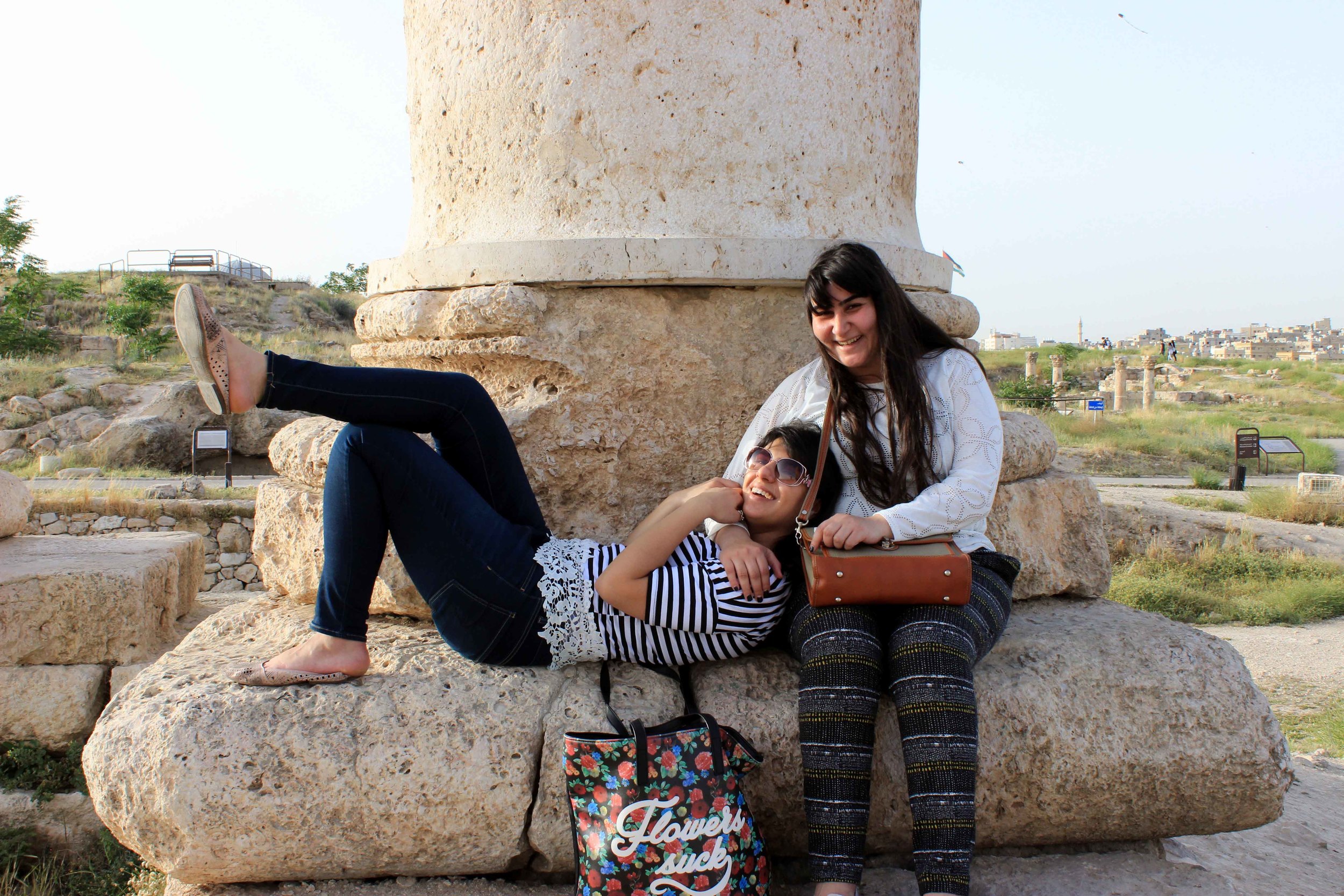
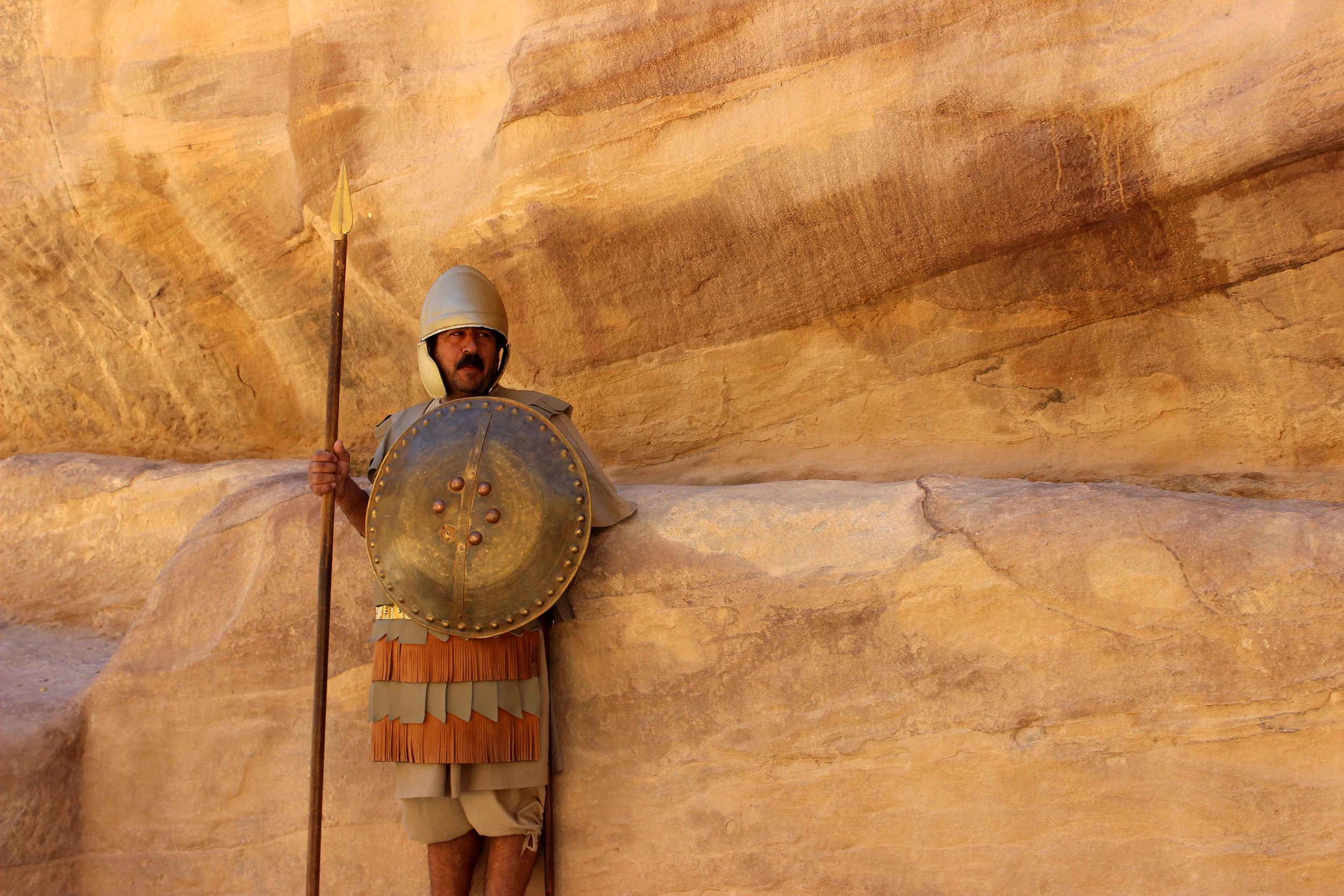
On my last day, I stayed behind in Wadi Rum for another hike with our Bedouin guide as my friends from our camping trip returned to Amman. We explored local corners, his favorite spots, climbed up rock faces, and searched for the most impressive views of the 700km of desert around us. He took me to a quiet mountain well, with clear, cold, fresh water and as I splashed the water on my face to wash away the dust, I felt a quiet that I have never yet experienced.
As we left the spring we ran into yet another jeep and two tourists got out. A young woman and I smiled at each other, asked where we were both from, and quickly switched to Hebrew as we realized our homes are both in Israel.
"You're here alone?" she asked. "You're not scared?" she wondered aloud.
I smiled and shook my head and waved as I walked back to the Toyota, sand in the soles of my sandals.
The day was coming to an end and my Bedouin guide helped me call a taxi and made sure that he would take me straight to the border. I climbed into the cab and waved goodbye to Salem, goodbye to the desert, and hello to air conditioning. The cabbie and I chatted in limited Arabic and English: “Where are you from. What do you think of Jordan. The desert is beautiful.”
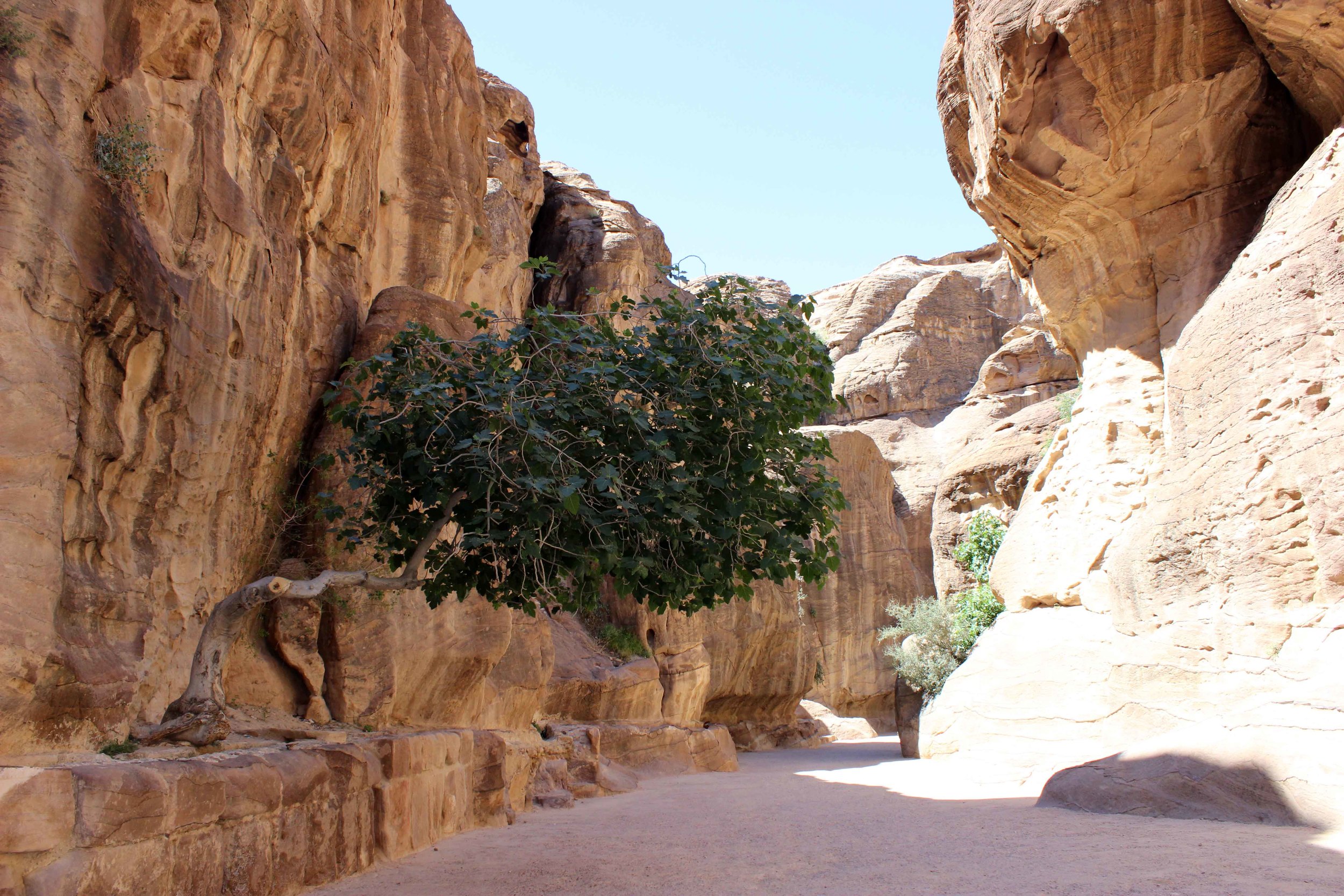
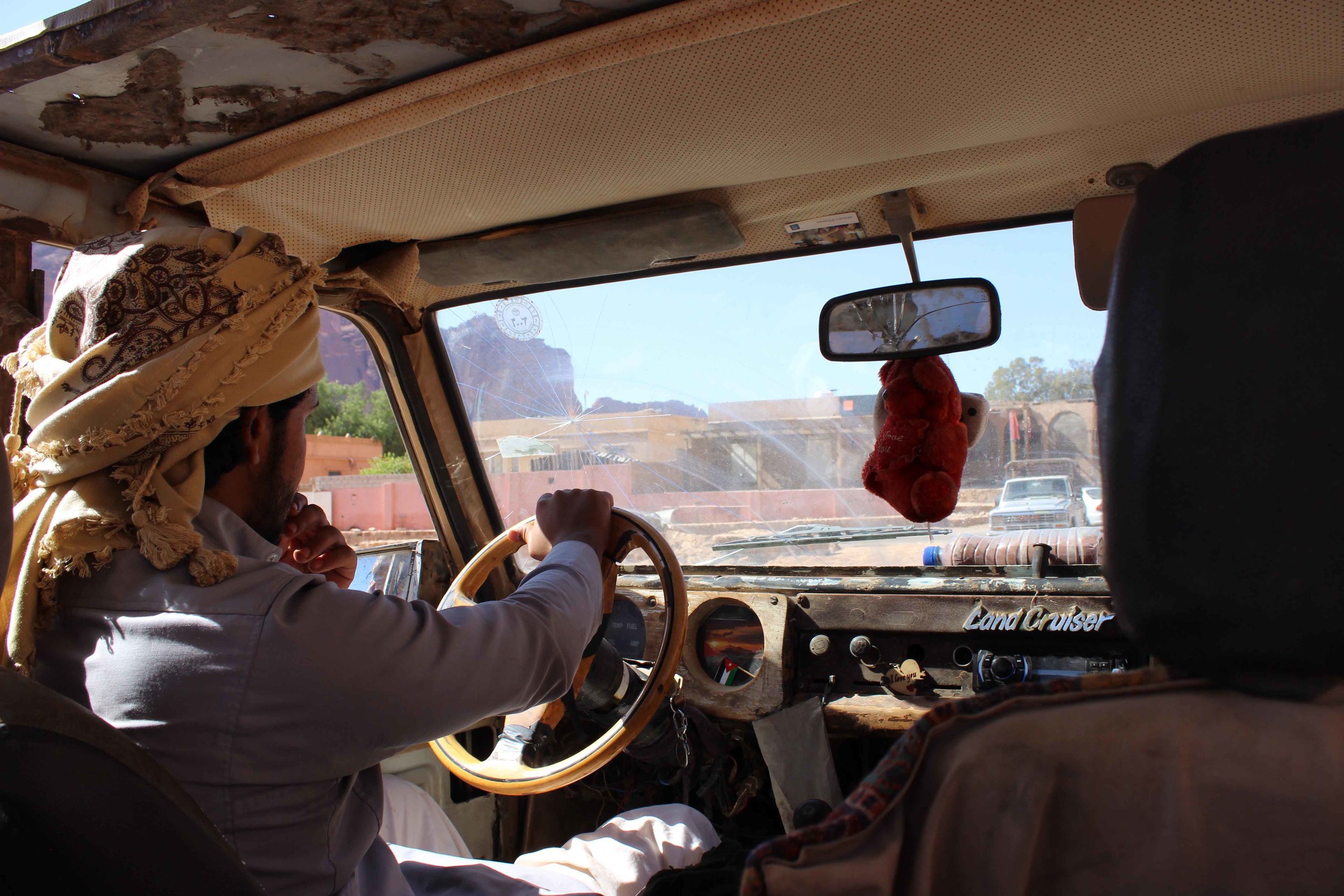
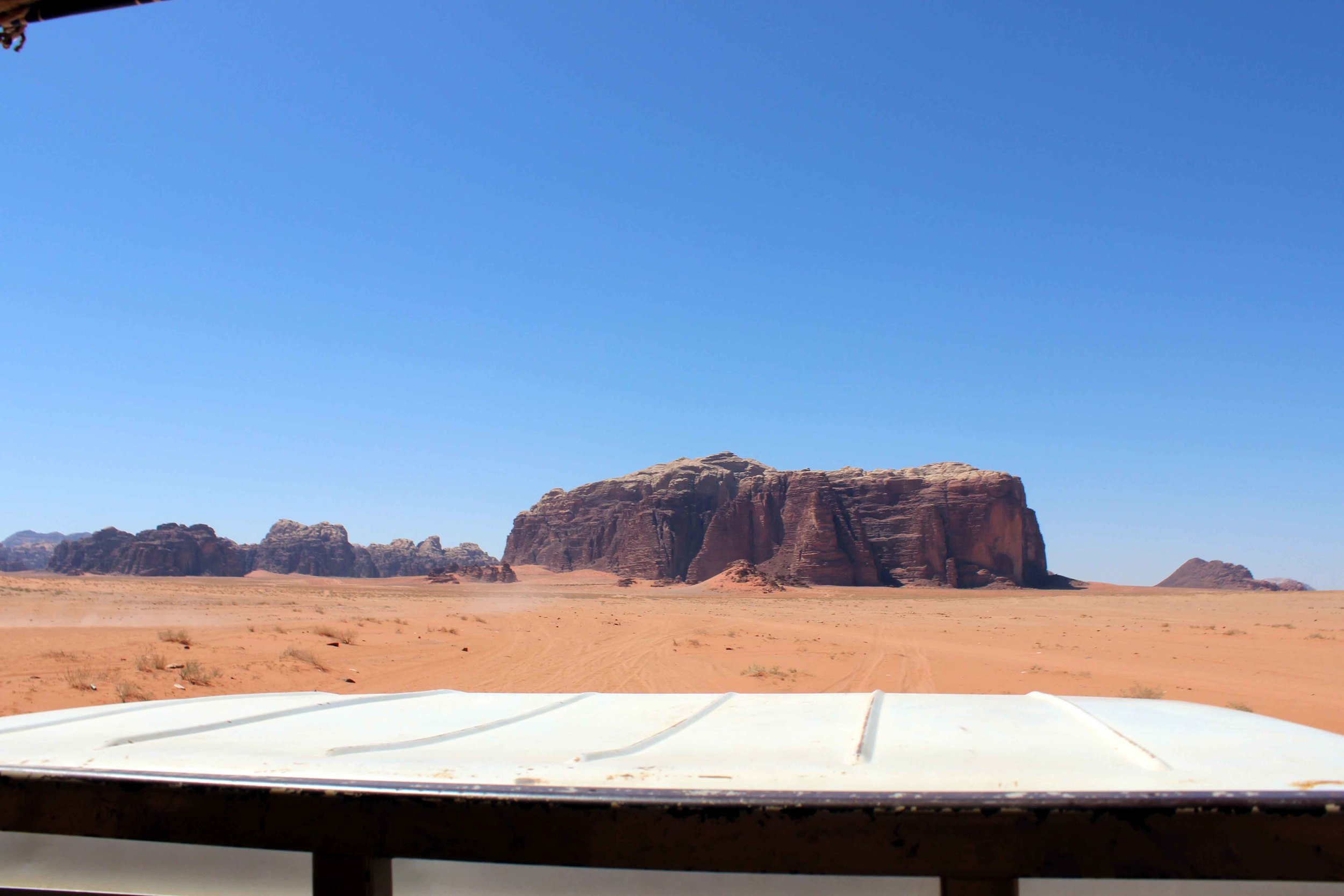
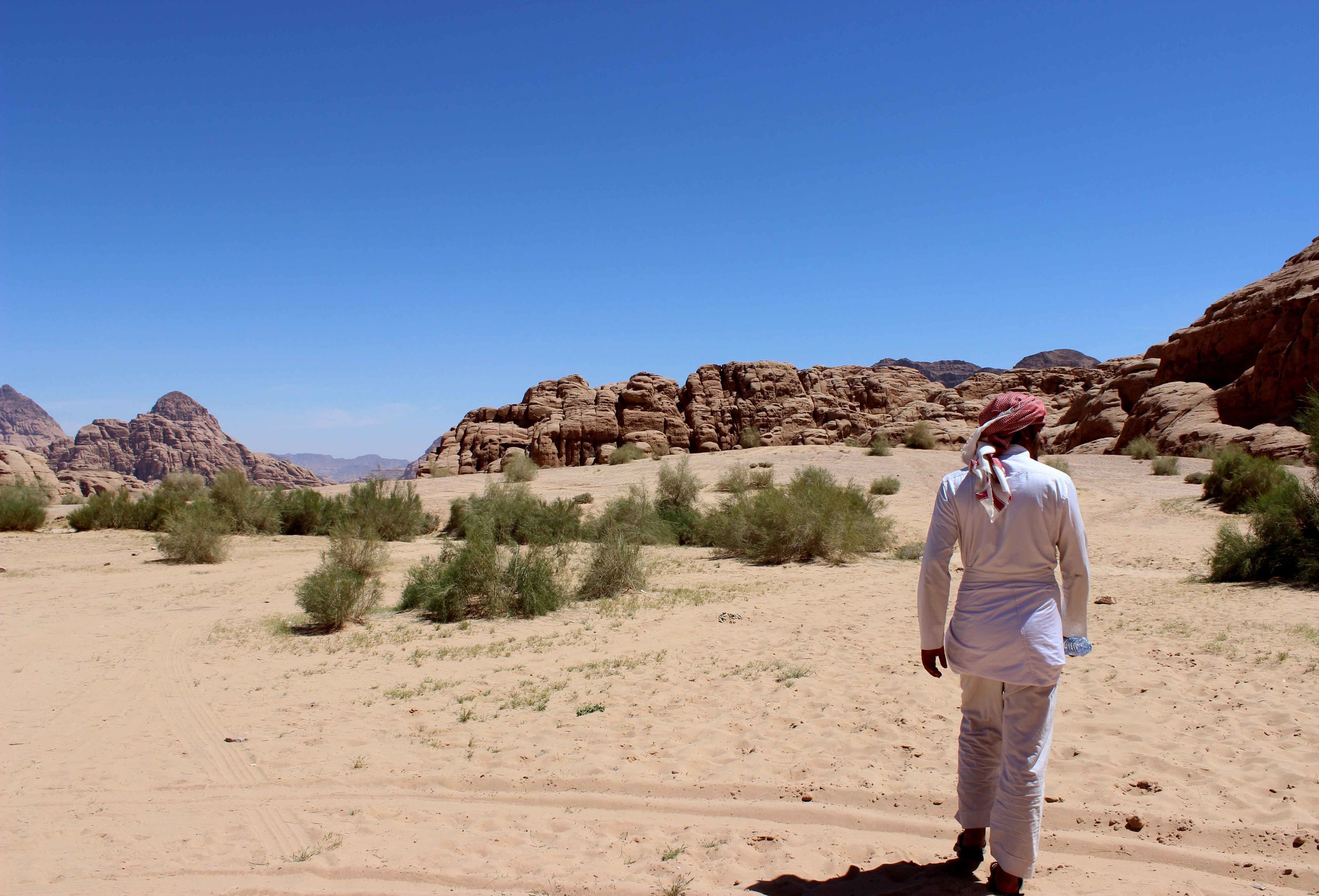
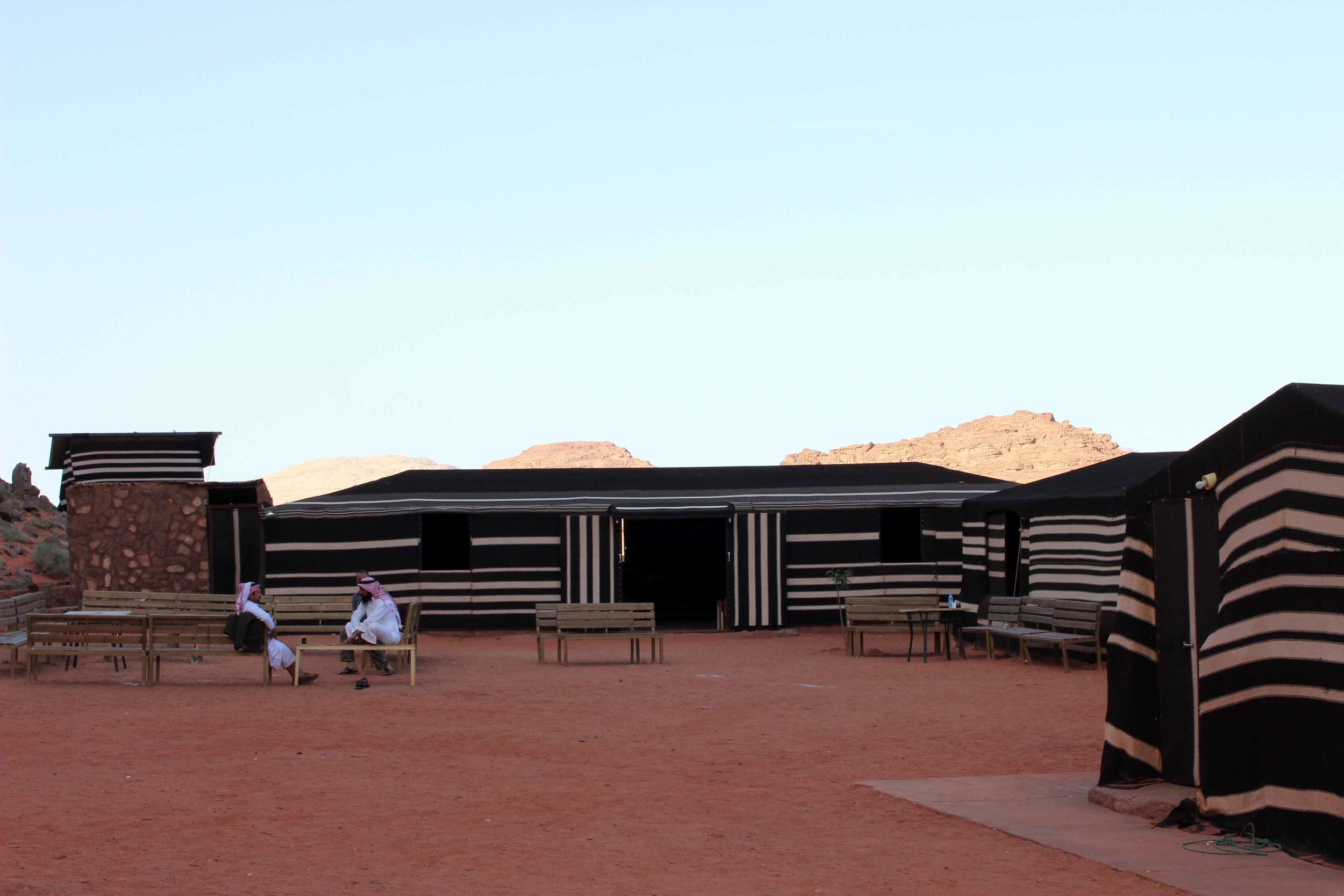
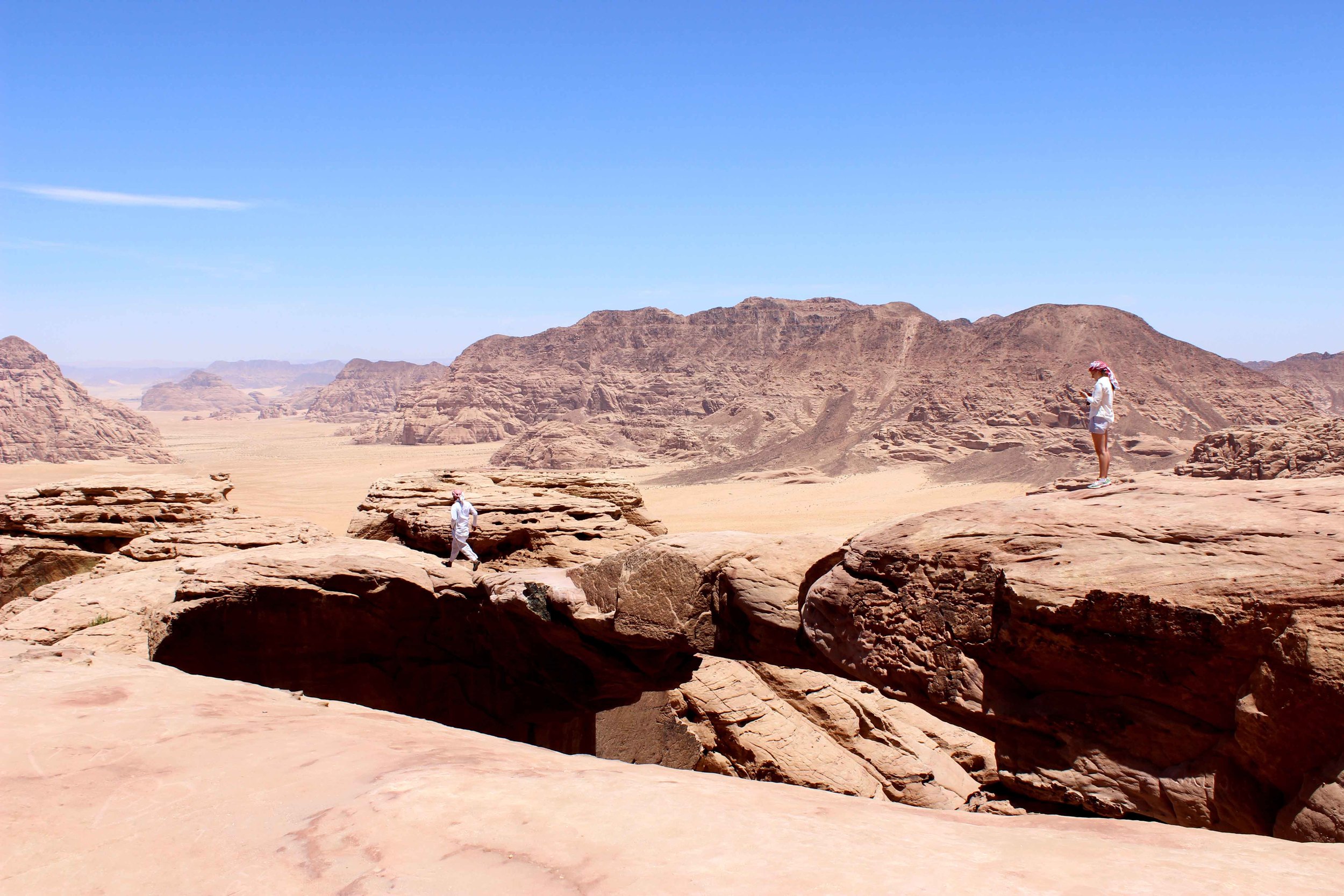
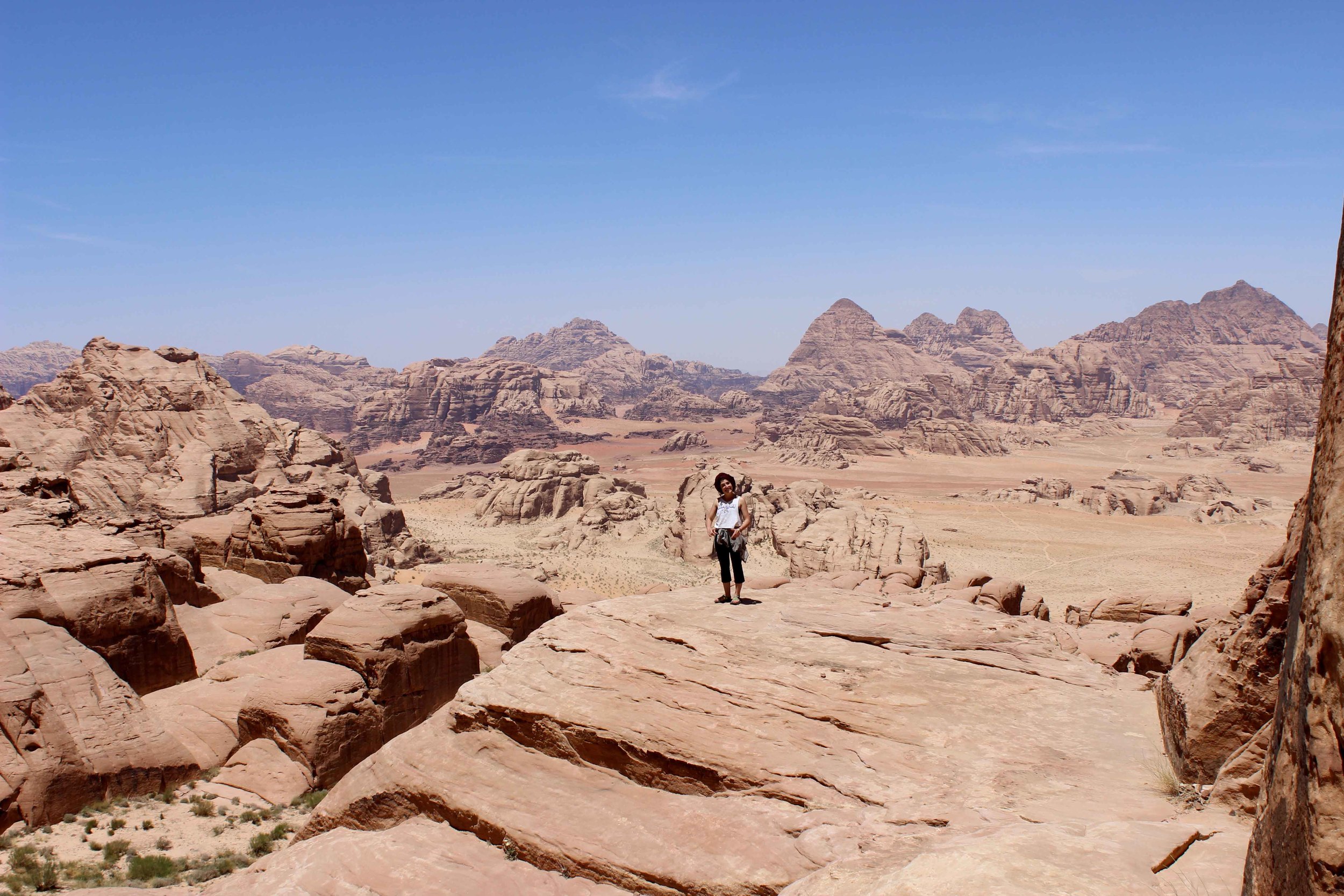
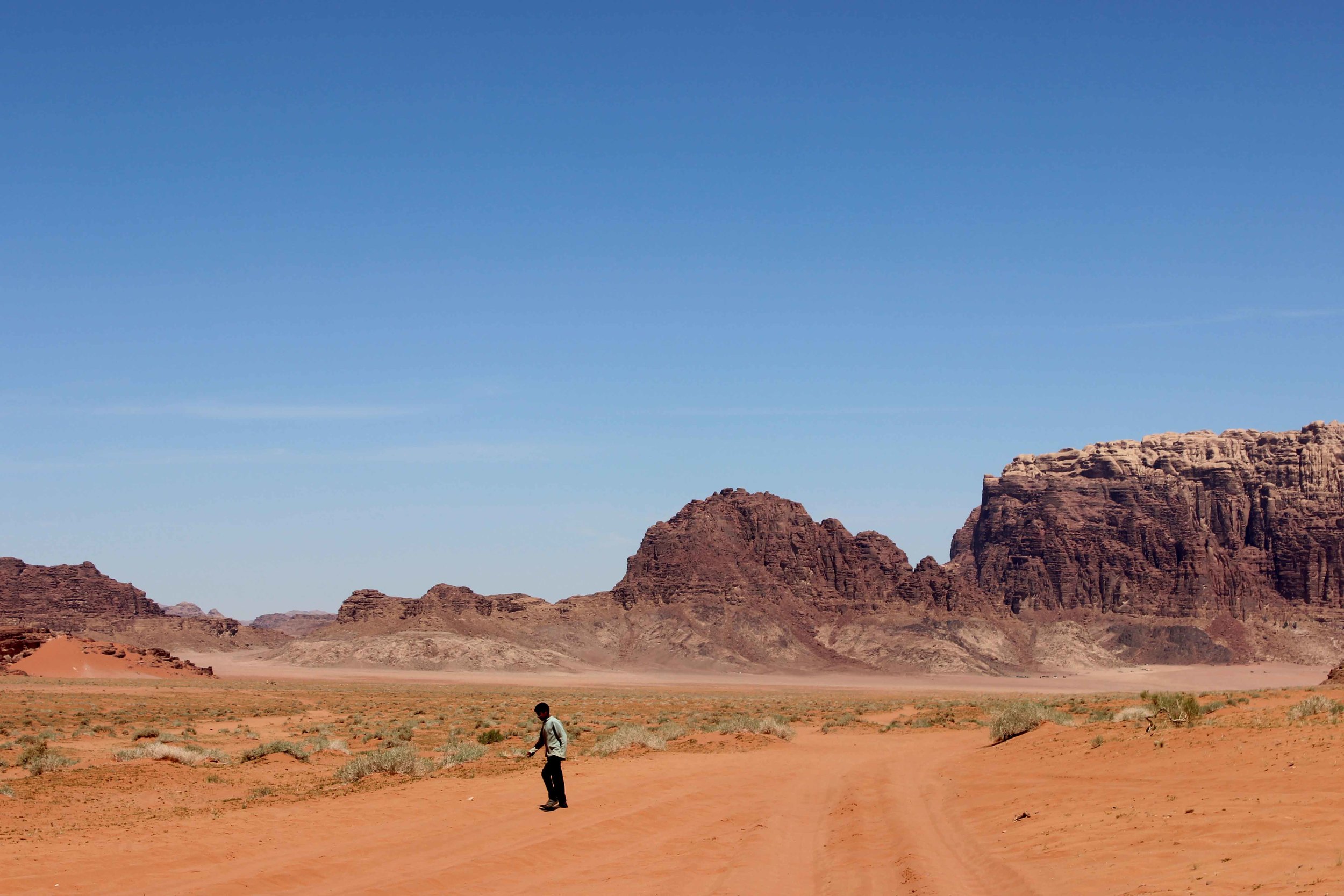
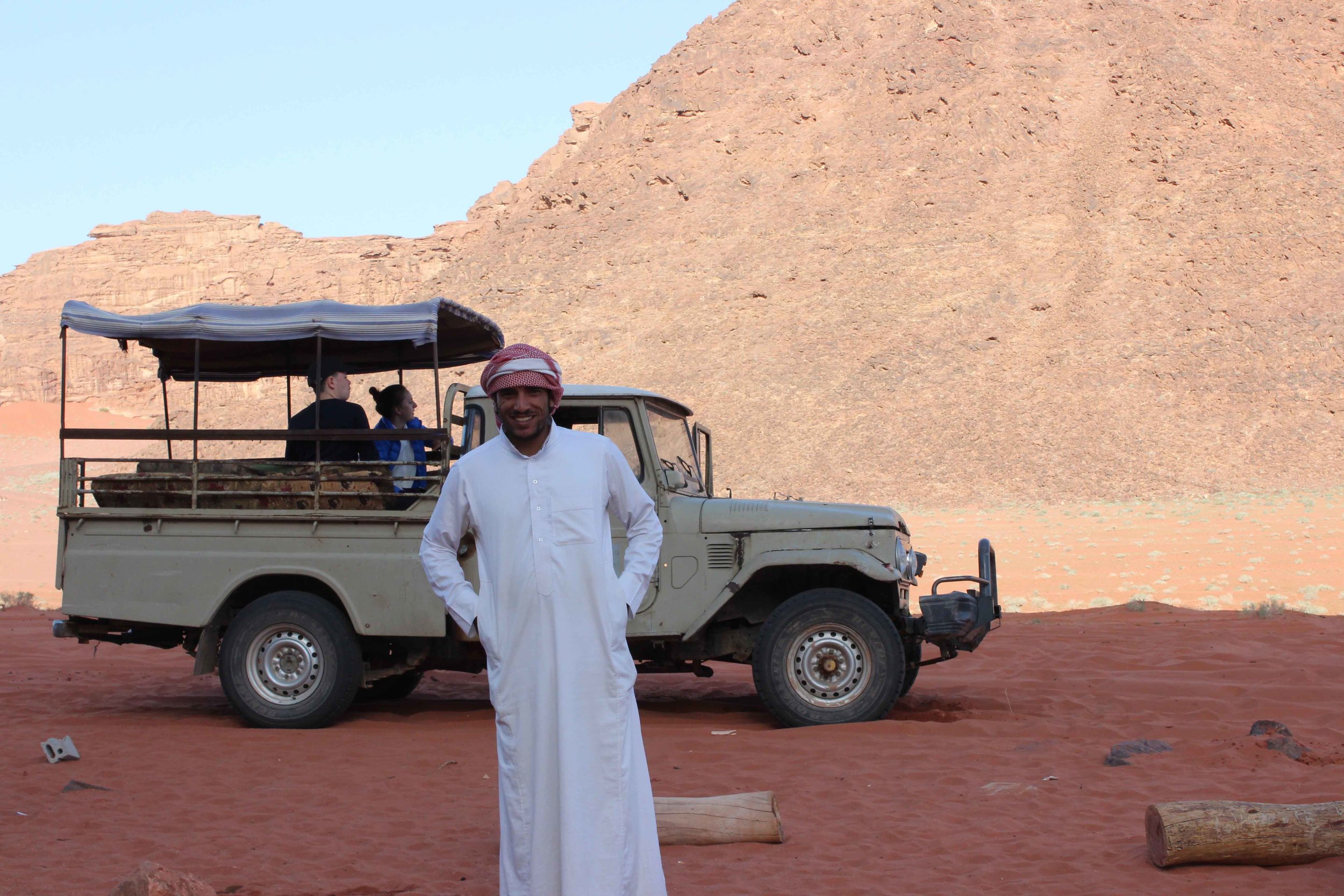
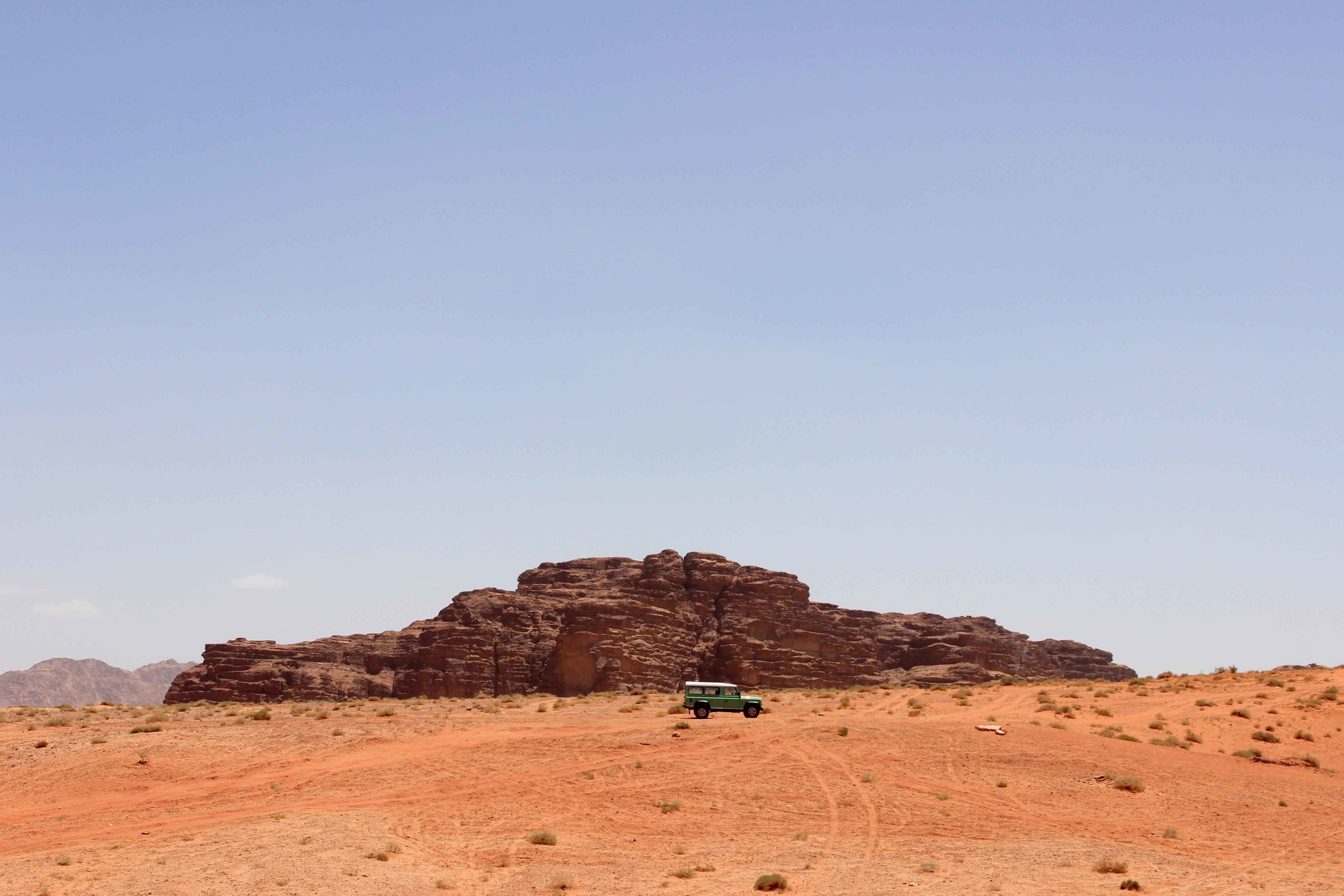
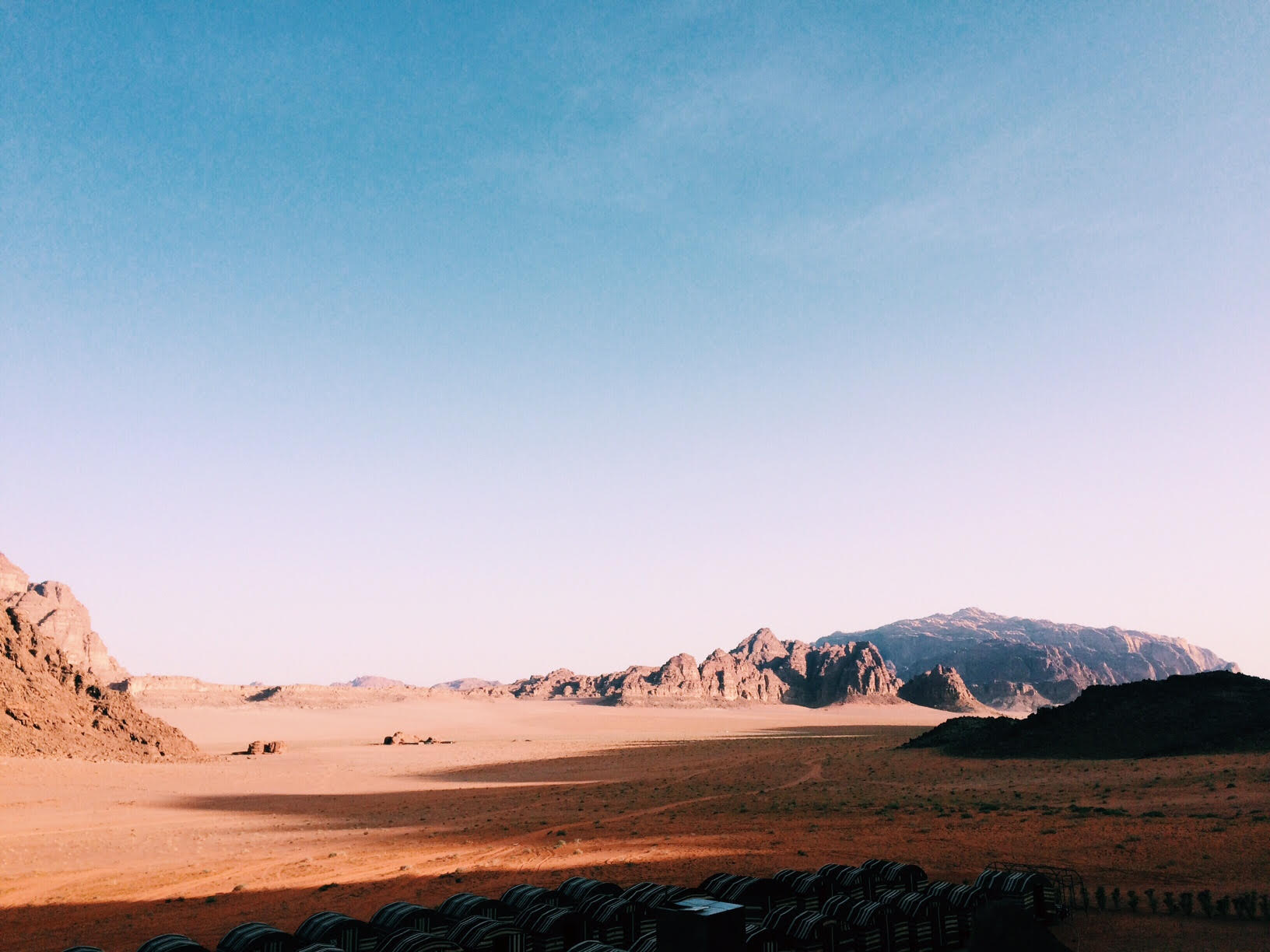
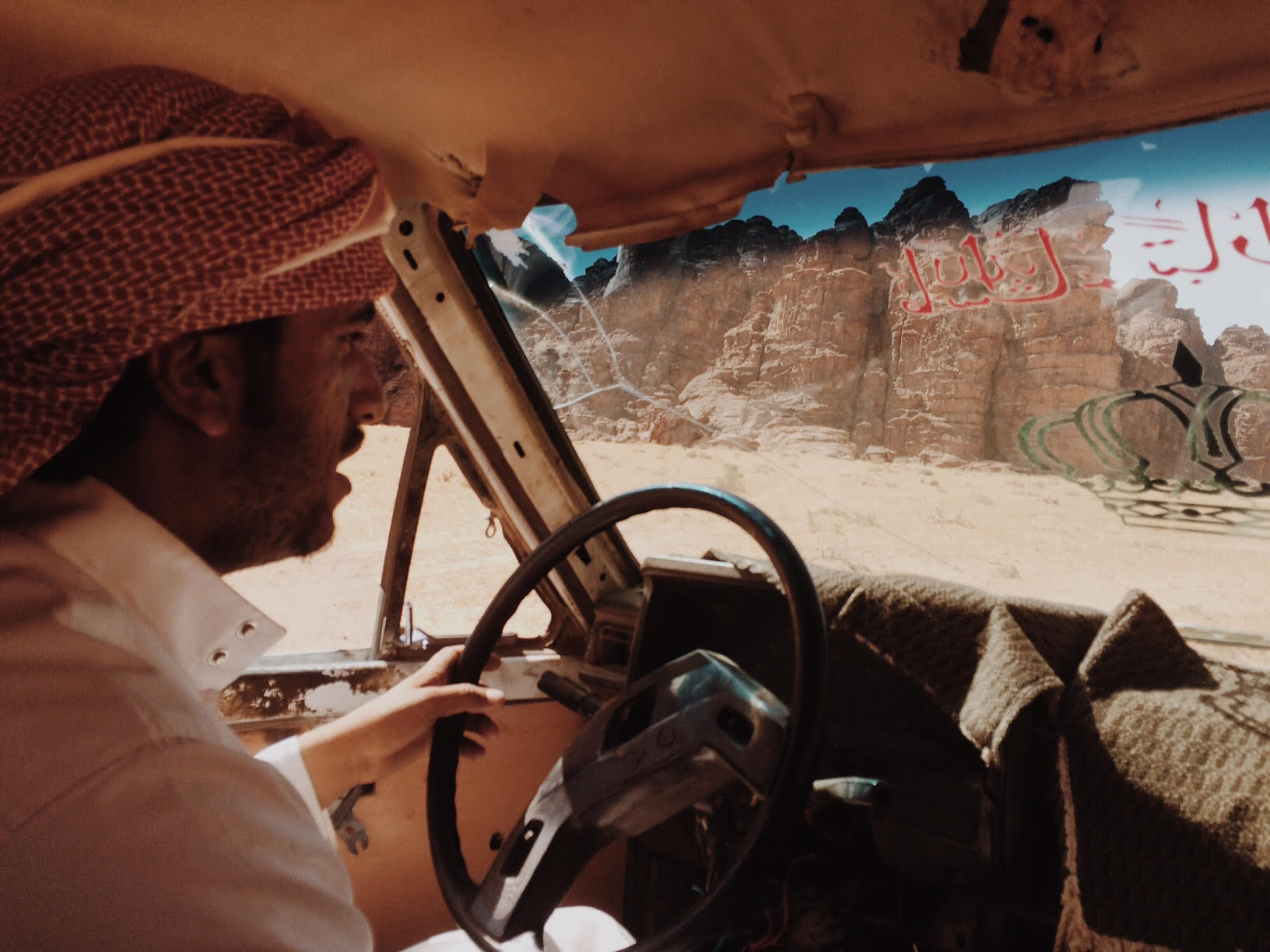
We were quiet for a moment and suddenly he reached down and started rummaging around the glove compartment. I got nervous. Here I am, alone in a cab, perhaps being too trusting. I began to think that every fear that had been instilled in my head was about to come true on this curving, isolated, highway road. He suddenly turned around and, smiling, offered me a melting ice cream.
My week in Jordan was a welcome wake-up call. According to the 24-hour news cycle, the world as we know it is poisoned and falling apart all around us: ISIS is hiding behind every turn, every stranger you meet may decide to shoot you, and every man is a rapist. In Jordan, I encountered a different reality: one in which humans are being human. Where good people are living good lives and being kind and recognizing the humanity in one another. It was a breath of fresh air and an important reminder. The world can still be kind.


